Please note, links to all the Freedom Essays are included at the end of this essay. Open any essay to read, print, download, share or listen to (as an audio).
Freedom Essay 61
General Discussion by Jeremy Griffith,
Aug. 2018
Recorded in Sydney, 25 August 2018
In this seminal discussion, biologist Jeremy Griffith presents his ‘grand summary of our project’, which he does by walking an audience of global WTM members and supporters through his videos 1-4 & video 14 in the Main Video series, which are KEY to understanding this all-important, world-saving-and-transforming explanation of the human condition. (Note that since this presentation was filmed, THE Interview has been published and now appears at the top of the WTM’s homepage as the ideal introduction to Jeremy’s breakthrough explanation of the human condition, in conjunction with two other new presentations, The Great Guilt and The Great Transformation, and then videos 1-4 & video 14.)
Make and see comments here
The Transcript of this video
Contents
Part 1 The Importance of Videos 1-4 (and video 14) on the WTM Homepage
Part 3 Plato and the ‘Deaf Effect’
Part 1 The Importance of Videos 1-4 (and video 14)
on the WTM Homepage
Jeremy Griffith: Welcome everybody, and welcome some of our members from our World Transformation Movement Centres from overseas.
I now just want to do a grand summary of our project. To do that I want to begin with this image:
This is one of our WTM T-shirts, it says: ‘The first 4 videos at HumanCondition.com are the key to understanding & solving EVERYTHING!’
On the homepage of our website there is a sequence of videos that introduce the understanding of the human condition. Above the video player it says, ‘The first 4 videos here are key’, and underneath the player again it says ‘The first 4 videos at HumanCondition.com are the key to understanding & solving EVERYTHING!’, so that includes a 24-minute video, a 6-minute video, a 14-minute video, and then a one-hour video. So what we’re saying is that if you watch these first four videos it will give you the super-duper access to this information which we are saying will transform everyone’s life and save the world—and this is the only information in the world that will do that, and it should become clear if that’s true. This is a very tight, fast way to get into this information, through these first 4 videos, and I want to quickly go through these first 4 videos.
The other access point you’ve got [scrolling down the homepage] is my book FREEDOM: The End Of The Human Condition [FREEDOM], which is the definitive presentation, and it’s quite a thick book. Then you’ve got Transform Your Life And Save The World [TYL], which is a condensation of FREEDOM, and while not a large book, is still a bit to read.
But these 4 videos—which are only 24 minutes, 6 minutes, 14 minutes and then one-hour long—are a very fast way to see what this is really all about. Also on our homepage are the Freedom Essays—see the slider—and above them it says: ‘Note that Freedom Essays 1–14 repeat the videos at the top of this homepage, so AGAIN THE FIRST 4 VIDEOS ARE KEY TO UNDERSTANDING & SOLVING EVERYTHING.’ These are the Freedom Essays, some of them containing videos, then the Transformation Affirmations follow. As the website says: ‘These essays cover all the main subjects in FREEDOM and so provide an easy way to read FREEDOM in wonderfully illustrated bite-sized portions.’ People find it hard to read books these days, they want instant access, and videos are obviously easy to watch. We also have podcasts of all our Freedom Essays, which Tim Macartney-Snape has narrated, and you can print off all the transcripts [via the links provided in the essays]—you can create a booklet.
The whole point is that if you want to know what this is all about, and how to save the world, and how to fix everyone’s life up, including your own, then these first 4 videos will do it, so that’s a huge claim—a 24-minute video, a 6-minute video, a 14-minute video, and then a one-hour video will punch a hole through all the mystery of life. As the T-shirt says: ‘The first 4 videos at HumanCondition.com are the key to understanding & solving EVERYTHING!’ You can’t get a bigger claim than that, so this is putting it all on the line. [Note, since filming this presentation Video 14 is now also highlighted on the website as being very important.]
So what are these first four videos?
[Since filming this presentation Video 1 has been replaced on the WTM homepage by an introductory video by Jeremy, but you can still see Tony’s introduction at www.HumanCondition.com/tony-up-river-story, in which he presents a very simple analogy, The Up River Story. The Up River Story simply explains that all these people are drowning in a river and other people are pulling some of them out, but many are still being swept downstream. Finally someone starts leaving to head upstream and everyone yells out “Come back and help us, we’re trying to save all these people who are drowning”, symbolising all the suffering and all the problems in the world which are overwhelming, so they are saying “Come back and help us.” The person leaving responds saying “No, I’m going upstream to find the son-of-a-bitch who’s pushing everybody in”, so they are going to the source of the problem, “I’m going up river”, so that’s The Up River Story. Tony Gowing gives that little 5-minute presentation to explain that someone has got to get down, dirty and serious, and get to the bottom of the whole issue of what it is to be human, basically we’ve got to understand the human condition, and that’s what this is all about. Tony holds up the book FREEDOM and says that that’s what this book does, it actually gets to the bottom of the whole thing.]
The second video is 6 minutes long, and titled The false ‘savage instincts’ excuse—because everyone has used the excuse that we have a competitive and aggressive nature because of a need to reproduce our genes like other animals, but this explains that that’s actually a false excuse, and I’ll explain shortly why we’ve had to use that false excuse. So everyone’s using it to explain “Men are brutal, because they’re out there trying to reproduce their genes and are very competitive, like bull elephants fighting each other.” But the truth is that humans have cooperative and loving moral instincts, as Charles Darwin said, ‘The moral sense perhaps affords the best and highest distinction between man and the lower animals’ (The Descent of Man, 1871, ch.4). So we’ve got cooperative and loving moral instincts. We talk about the barbarian savages being brutal while we’re civilised and controlled, but actually, if we’ve got moral instincts as Darwin said we have, then they must have come from a time when presumably our ape ancestors lived cooperatively and lovingly. Our ancestors were innocent, peaceful and loving, and for some reason they then became competitive, aggressive and brutal, and the human condition emerged. So the progression is the reverse of what we’re being taught. The progression is not developing from brutal, club-wielding savages, but from being cooperative and loving and gentle to becoming increasingly competitive, aggressive and brutal.
It is us humans now who are psychotic angry, egocentric and alienated, seemingly ‘evil’ monsters!
Detail from Jean-Michel Basquiat’s 1982 ‘Untitled’ painting which was sold in May 2017 for US$110.5 million, which, at the time was the sixth most expensive artwork ever sold at auction, no doubt because of its extraordinarily honest portrayal of the true nature of our present horrifically psychologically upset human condition—see Freedom Essay 30.
This is interesting; this [pointing to top image above] features my quote that says: ‘Our ape ancestors were innocent, loving nurturers’ and goes on to cite that ‘Palaeoartist Jay H. Matternes’s unusually honest reconstruction of our ancestor, the 4.4 mya Ardipithecus ramidus, which appeared in the December edition of Science magazine—see F. Essay 22 for more on the fossil evidence of our nurtured past.’ You can see they’ve got these gentle faces, not the brutal savages, the club-wielding brutes like we usually portray them as [pointing to second image]. This painting [pointing to bottom image] by the African-American artist Jean-Michel Basquiat was sold in May 2017 for ‘$US110.5 million’, which, at the time, was ‘the sixth most expensive artwork ever sold at auction’ (The New York Times, 18 May 2017). Like the artist Francis Bacon’s pictures of the human condition, it’s so honest because it shows the real brutality and truth about human nature, that we are competitive, aggressive and brutal, so we are the ones that are like these images [pointing to second and third images]. Our ancestors were actually gentle, peaceful and loving like that first image portrays. So that’s a little cameo description of Darwin saying our ancestors were cooperative and loving and that we have moral instincts, and then we became increasingly upset, and eventually we ended up like Basquiat’s painting [and Bacon’s below], which is us today.
So why have we needed to use this savage animal instincts excuse?
To bring understanding and relief to the human condition we needed knowledge; we’re a thinking being, so we need understanding explanation, knowledge. Since this is a biological treatise that we’re talking about here, the second video in this series deals with that ‘savage animal instincts’ excuse right up-front, that, sure, we’ve used that excuse for why we’re brutal savages, but that is false—we have cooperative, loving, moral instincts, and we deal with that right up-front.
Now we’re going to go on and explain that the reason for our competitive and aggressive behaviour is not because our ancestors were brutal, competitive, ‘trying-to-reproduce-their-genes-like-other-animals’ savages, but that it is due to a psychosis. And so the next video will very quickly explain the real reason for our competitive and aggressive behaviour—the 14-minute video, Video/Freedom Essay 3: The EXPLANATION of the human condition.
So the third video, which is only 14 minutes long, explains that the reason for the human condition is this conflict between our original instincts and our newer conscious mind. What it makes very clear is that if a species becomes conscious—stop and think about it—having already been instinctively controlled, clearly the conscious mind is going to start managing life from a basis of understanding; it’s a self-adjusting, self-managing system. So instincts have been acquired over thousands of years of natural selection, so in-effect are going to be intolerant of the mind now going on its own search for knowledge, for understanding—for carrying out experiments of understanding. It’s obvious that what caused us to be competitive, aggressive and selfish was this battle that emerged between our original instinctive state and our conscious mind.
To quickly describe how that would happen, I’ll use an example of an instinct, like a chook sitting on its eggs to get them to hatch. If there was a genetic make-up that inclined the chook to get off its eggs before 20 days, then those eggs won’t hatch, so those genes won’t reproduce. So all chooks now, through an instinctive orientation, sit on their eggs for 21 days until they hatch. It’s not understanding, chooks don’t understand that they’ve got to sit there, they don’t even know what’s inside the egg, they’ve got no knowledge, they’re as thick as bricks if you’ve ever tried to talk to a chook! [Audience laughs.]
So to present this explanation of the human condition, we need to find an instinct that we can all understand. Obviously birds migrate tremendous distances, so that’s an instinctive orientation. Storks winter in the swamps of South Africa, then fly around the coast of Africa to nest on the rooftops in Europe. They do that back and forth each year, from winter to summer.
Through natural selection they’ve learnt not to fly across the Sahara Desert because all those that had an instinctive make-up to fly across the Sahara obviously got frizzled, it was too far. So now they’re all perfectly instinctively orientated where to fly and where not to fly, but again, they don’t understand anything. Now, what would happen if we grabbed one of those storks and put a conscious mind in its head, and we got in an ultra-light plane and follow along behind to see what happens. We’ll call him ‘Adam Stork’, because this will relate to the story of Adam and Eve in the Garden of Eden shortly. So Adam Stork is now thinking for himself, he’s a self-adjusting system; he’s going to start carrying out experiments in understanding, that being his responsibility as a conscious being. He sees an island with some apple trees on it and thinks “I’ll fly down there, why not?”, there’s no reason at this stage why he should or shouldn’t. So immediately he heads off to carry out his first grand experiment in self-adjustment, and of course his instincts being dictatorial are, in effect, unappreciative of his need to search for knowledge—they condemn his search and say “You should fly back on course with the rest of us.”
So now he’s in a quandary, if he obeys his instincts he’ll never find knowledge, but if he perseveres with his search for knowledge his instincts are going to continue to scream at him, like the wide-eyed innocent stork in the image above. He has to persevere with his search for knowledge, he can’t cut his brain out and throw it away, so obviously three things are going to happen. He’s going to try to stop the criticism by blocking it out—he’s going to become alienated because he doesn’t want to hear the criticism; he’s going to get angry towards the criticism; and he’s going to be preoccupied trying to validate himself all the time, trying to prove he’s good and not bad. He is going to become angry, egocentric and alienated. The astonishing thing about this little drawing—I suggest this is the most powerful little drawing to ever appear on this planet, because it turns the whole equation around, because who’s the hero of that story? Adam has become an angry, egocentric and alienated dude, but he’s the hero because he’s got the courage to defy the condemning instincts and search for knowledge. Now that he’s got a conscious mind, and surely the conscious mind is natures greatest invention, he’s got a huge responsibility to carry out this corrupting search for knowledge—corrupting because it is going to make him angry, egocentric, and alienated—but he is good and not bad.
The story of the Garden of Eden has the same essential elements. It says Adam and Eve lived in the Garden of Eden, and if you look up ‘Edenic’ in the dictionary it says: ‘the state of innocence, bliss, or ultimate happiness’ (The Free Dictionary). So they were living in this original state of innocence. Then they took the fruit from the Tree of Knowledge, which obviously means they became conscious beings, searchers for knowledge. In that story it says they became sinful—angry, egocentric and alienated—and were thrown out from the Garden of Eden as being bad or ‘evil’. But suddenly through science we can understand the difference between the way genes and nerves work. Genes can give species orientations through natural selection, but only nerves can understand cause and effect. So science finally enables us to explain how the nerve-based learning system works—it’s a self-adjusting system, it’s insightful—whereas the gene based natural selection system is not, it can only give species orientations.
So now this war between these two selves can end because this guy [angry, egocentric and alienated Adam Stork] in effect can sit down with that innocent part of himself [instinctive Adam Stork] and say, “Listen mate, get off my back. I’ll tell you why I’m good, because I’m a self-adjusting system. If you pass an electric current through a nerve it leaves an after-image which is memory, which when much developed can remember past events and be compared with current events. Then you can find commonly occurring events and you become insightful to the nature of change on the basis of what’s happened in the past. You can start predicting what’s going to happen in the future, so you can become an insightful, self-adjusting system—you become conscious, conscious or aware of how our experiences are related, so you can become ‘understanding’.”
So Adam Stork can sit down with his instinctive self and say, “Listen mate, you were wrong. I wasn’t bad, I was good. And now I’ve got the benefit of science to explain why I was good, because since Darwin came up with the idea of natural selection, I can explain how the gene-based learning system works. I can explain how the nerve-based learning system is based on memory and when much developed can become conscious or understanding of cause and effect, and therefore I can now explain that I’m good and not bad.” Adam Stork is genuinely the hero of the story, and he’s actually the hero of the whole story of life on Earth, because again, the conscious mind is nature’s greatest invention, and it was given this most horrible task of searching for knowledge while the instinctive self was condemning it. Let’s face it—all of nature, all the other animals, the birds and the trees, are all friends of our original instinctive selves, so by implication the whole of the world has been condemning Adam Stork, because he’s become angry, egocentric and alienated, as ‘evil’, but he never was. He is actually the hero of the whole story of life on Earth!
That is most wonderfully relieving; it turns the whole equation around! Every time (because we’ve been fully conscious beings for some 2 million years), every time we thought about the human condition—which is this dilemma of why we’re competitive, aggressive, selfish; angry, egocentric and alienated when the ideals are to be cooperative, loving and selfless—the only conclusion that we could come to was that we must be evil (which I’ll go onto to explain much more about). So this is the redeeming explanation, because Adam Stork has become psychologically upset.
Our instinctive orientations weren’t to some flight path. As I’ve said earlier, Darwin said, ‘The moral sense perhaps affords the best and highest distinction between man and the lower animals’, so we’ve got moral instincts, cooperative and loving instincts. So when we became conscious some 2 million years ago—and this is very important, very interesting—we suffered a ‘double whammy’ because when we started self-adjusting and carrying out experiments in understanding, our instincts in effect criticised us; and because we retaliated against that criticism in an angry, egocentric and divisive way, our moral instincts were doubly condemning, saying “Now you’re really bad! First you defied us, then you started behaving in a way that’s completely the opposite of what we want you to be—which is cooperative and loving and moral—and now you’re competitive, aggressive and selfish, so you’re doubly bad.” So we suffered a ‘double whammy’ when we became conscious. Any species that becomes conscious is going to end up in a war with their instincts, obviously because instincts are not insightful. As soon as a species becomes conscious they are going to start experimenting in understanding. That experimentation in understanding can only end when Adam Stork finds sufficient knowledge to sit down and explain himself, and that’s why he has to develop science. That’s why for 2 million years, every time we thought about the human condition, the only conclusion the human race could come to was that we were bad, awful people. So one day, we had developed science and collected enough information to finally defend ourselves, then and only then could we bring an end to this incessant criticism. [The ‘double whammy’ effect from having moral instincts is described in F. Essay 24 and in depth in chapter 3:5 of FREEDOM.]
So the great paradox of being a human is that we had to search for knowledge, which made us competitive, angry, egocentric and alienated—as Joe Darion’s fabulous lyrics of the song The Impossible Dream, which featured in the 1965 musical about Don Quixote, Man of La Mancha, said: we had to be prepared ‘to march into hell for a heavenly cause’. That’s the paradox of the human condition. We had to suffer becoming upset—angry, egocentric and alienated—in order to find knowledge, ultimately to find sufficient knowledge to defend ourselves against and stop the criticism.
Now, this is how this transforms your life and the whole world. Once you find sufficient knowledge to explain that you’re good and not bad, all these artificial ways of defending yourself, by blocking out the criticism, and attacking it, and trying to validate yourself all day long by winning as much power, fame, fortune and glory as you can, is suddenly obsoleted. You don’t need those artificial defence systems when you’ve found the real defence for your system, so that’s where you get this massive transformation of the human race. That’s why finding understanding of the human condition has been described as the holy grail of the whole human journey of conscious thought and inquiry, because we had to find sufficient knowledge to defend ourselves, and that required creating science. So you can imagine humans getting more and more frustrated that they can’t get out of this bind where they’re condemned as ‘evil’, every which way they look at it, so one day they sit down and say “We’ve got to start counting frogs eggs; we’ve got to start building a base of knowledge, and systematically get more and more knowledge until one day we can finally defend ourselves.” We’ve got to suffer becoming upset, ‘march into hell for a heavenly cause’. This is a defence of upset but it also obsoletes the need for upset, and heals upset.
Carl Jung (1875–1961)
The psychoanalyst Carl Jung was forever saying ‘wholeness for humans depends on the ability to own our own shadow’, but we’ve never been able to ‘own our own shadow’, which is the dark side of ourselves. But now that we can explain why we’re good and not bad after all, all the psychologically retaliatory, upset behaviour ends. This is how the human race transforms itself, through finding knowledge, ultimately through science, finding out how genes and nerves work. That’s all explained in about the same length of time in Video 3 on our website. So that’s the real explanation that we have cooperative and loving moral instincts, we’re not orientated to some flight path, but now we can understand why we ‘fell from grace’ and left the Garden of Eden state of original innocence, now we can explain ourselves and return to the paradise.
The poet T.S. Eliot said, ‘And the end of all our exploring / will be to arrive where we started / And know the place for the first time’ (Little Gidding, 1942), which is dead right. ‘The end of all our exploring’, which was corrupting, was to arrive back in innocence, but in an understanding state. So now we can go back to the Garden of Eden and knock on the door and say to the guardian angel, “Listen, you shouldn’t have chucked us out in the first place, we’re good and not bad after all.” The guardian angel will say, “Sorry, I didn’t mean to condemn you, come on in and I’ll show you around, here are the elephants and the giraffes. Here are all your original friends waiting for you and they’re all really sorry that they got the shits with you, but mate, you were out the gate! You were brutally competitive and aggressive and you shot all of us animals because you thought our innocence was condemning you”—that’s the real reason for hunting animals, it’s getting even with innocence because their innocence unjustly condemned us.
So everything unravels from the moment we can finally defend ourselves. But there’s also a big problem because we’re so habituated to using the false ‘savage instincts’ excuse for our corrupted condition. It’s such an easy excuse, “Animals are fighting all the time, that’s why we do it”, but it’s absolute bullshit. We all know we’ve got moral instincts, the voice or expression of which is our conscience. How do we get a conscience? It didn’t come from nowhere. One of the great mysteries in biology, which I’ll explain and solve in a minute, is how we got our moral instincts. We’ve got moral cooperative, loving and gentle instincts, not brutal, competitive, aggressive savage instincts, but we use this excuse that we’ve got savage instincts to get us off the hook while we waited for the real psychosis-addressing-and-solving-real explanation, which is this ‘instinct vs intellect’ explanation—that’s the real explanation for the human condition.
So that’s the third video, The EXPLANATION of the human condition, ‘The Adam Stork Story’, about how we’re good and not bad after all. So what’s this one-hour video that’s so critical? That’s the one I want to talk to you about, the one I want to go through, because that’s really, really, really interesting, this fourth video: Video/F. Essay 4: The ‘instinct vs intellect’ explanation is obvious.
Darwin said that ‘The moral sense perhaps affords the best and highest distinction between man and the lower animals’, and I described how Moses, 3,500 years ago, wrote the story of the Garden of Eden, which has the essential elements of the explanation of ‘instinct vs intellect’—we were living in this Garden of Eden-Edenic state, and then we took the fruit from the Tree of Knowledge, became conscious, and that story says, sure enough, we became ‘sinful’ in the old ‘condemning terminology’, which is no longer bad anymore, we can now understand our psychosis. So it’s got the elements in there, that we were loved in the Garden of Eden-state of original innocence, and then we became conscious and the ‘shit hit the fan’, so all the elements of the human condition are in there. In fact, all mythologies—all great myths and religions—have the same elements, this same truth, embedded in them.
The author Richard Heinberg researched and wrote the book Memories & Visions of Paradise (1990), about the time that we did live cooperatively and lovingly. This is a key paragraph: ‘Every religion begins with the recognition that human consciousness [our mind] has been separated from the divine Source [‘divine’ in the sense of being ideal], that a former sense of oneness [being cooperative and loving]…has been lost…everywhere in religion and myth there is an acknowledgment that we have departed from an original…innocence and can return to it only through the resolution of some profound inner discord…the cause of the Fall is described variously as disobedience, as the eating of a forbidden fruit, and as spiritual amnesia [mental blocking out or forgetting or alienation]’ (pp.81-82 of 282). I’ll talk about this more in a moment; we were so ashamed at having destroyed this magic world of our soul where we were living cooperatively and lovingly, that the only way we could cope with it was to deny it, block it out, and not allow that truth up. Then we put in its place this dishonest excuse that we have savage instincts, so it was all a reverse-of-the-truth lie. Our instincts are actually cooperative, loving and gentle—not brutally savage, club-wielding monsters, evil people—but we had to block out all these truths. In a moment I’ll describe how Plato described us as having to hide in a cave, so ashamed were we by our brutal condition. So we suffer from ‘spiritual amnesia’, tremendous alienation. It’s all in there isn’t it? The ‘resolution of some profound inner discord’, through the resolution of our ‘separated’ ‘original’ state of ‘innocence’ and ‘conscious’ mind, depended on science providing insight into the way genes and nerves work.
We’re now looking at what’s in Video 4, that one-hour video, Video/F. Essay 4: The ‘instinct vs intellect’ explanation is obvious, so I’m quickly taking you through that fourth video, because I want you to see the power of it.
Plato said we’re hiding in the cave, in darkness, where no light can get in and expose us, because you could visualise this whole Earth, and I’m not exaggerating, as having this steel-casing around it so no light can get out and get in. So we live in this darkness because any truth that comes in is too unbearably condemning and confronting. So we’re encased in this steel structure and if any little peak of light gets in we go up there with a big ladder and welding machines, and we put a big slab of steel across it so no more light can get in there. There is this massive denial going on in this cave world we are living and hiding in. So one day someone had to come along and break the spell of all that denial and all that dishonesty. And it’s in every myth; like the story of David and Goliath where a little boy comes along and breaks the spell, kills Goliath who’s this monster, which is basically a metaphor for all this dishonest denial.
The greatest myth in Australia, The Man from Snowy River by A.B. [Banjo] Paterson, is actually this story. It says that all the men from near and far came to try and save this escaped thoroughbred, obviously being the truth, and they go to the edge of this huge precipice, and at that point only this little boy could go out and bring back the ‘escaped truth’, which symbolises innocence, because at some point someone’s got to go out and retrieve the truth.
It’s a recognition that Australia is a sufficiently sheltered and isolated country that enough innocence might survive here to actually look into this forbidden subject of the human condition and bring out the redeeming understanding of it—actually solve this problem ‘through the resolution of some profound inner discord’ between our moral instincts and conscious mind. And I’m suggesting that that’s what this whole project is based on and what’s happened.
So that’s the beginning of Video 4; we’re now going to look at the ‘Ancient thinkers who recognised the instinct vs intellect elements of the human condition’.
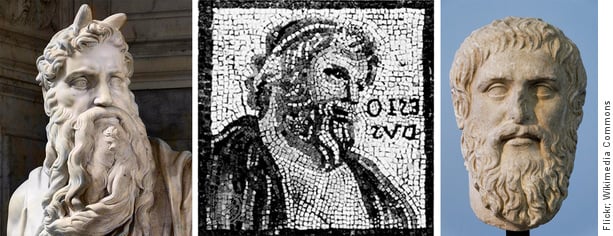
Moses (as depicted by Michelangelo c.1513–1515); Hesiod, from the Monnus mosaic, c.200;
and Plato (c.428–348 BC)
[The following passages, including highlights, were displayed on-screen at this point of the meeting]:
Moses recognised the clash between our moral instincts and conscious mind with his story of Adam and Eve living in the Garden of Eden-state of original innocence and then taking the fruit from the tree of knowledge, became conscious, and becoming sufferers of ‘sin’, the psychologically upset state.
Hesiod, in The Works and Days and Theogeny (c.800 BC): ‘When gods alike and mortals rose to birth / A golden race the immortals formed on earth…Like gods they lived, with calm untroubled mind / Free from the toils and anguish of our kind / Nor e’er decrepit age misshaped their frame…Strangers to ill, their lives in feasts flowed by…Dying they sank in sleep, nor seemed to die / Theirs was each good; the life-sustaining soil / Yielded its copious fruits, unbribed by toil / They with abundant goods ’midst quiet lands / All willing shared the gathering of their hands.’
Plato, in Phaedrus (c.360 BC): ‘there was a time when…we beheld the beatific vision and were initiated into a mystery which may be truly called most blessed, celebrated by us in our state of innocence, before we had any experience of evils to come, when we were admitted to the sight of apparitions innocent and simple and calm and happy, which we beheld shining in pure light, pure ourselves and not yet enshrined in that living tomb which we carry about, now that we are imprisoned in the body, like an oyster in his shell.’
Plato, in The Statesman (c.350 BC): ‘blessed and spontaneous life…[where] neither was there any violence, or devouring of one another, or war or quarrel among them…In those days God himself was their shepherd, and ruled over them [our original instinctive self was orientated to living in an ideal cooperative, loving way]…Under him there were no forms of government or separate possession of women and children; for all men rose again from the earth, having no memory of the past [we lived in a pre-conscious state]. And…the earth gave them fruits in abundance, which grew on trees and shrubs unbidden, and were not planted by the hand of man. And they dwelt naked, and mostly in the open air, for the temperature of their seasons was mild; and they had no beds, but lay on soft couches of grass, which grew plentifully out of the earth.’
So that’s some unabashed descriptions of the recognition from Moses, Hesiod and Plato of this wonderful time when we lived cooperatively and lovingly.
So as I said earlier, if we do have cooperative and loving moral instincts, the voice of which is our conscience, then we must have acquired them from some past time when presumably our ape ancestors lived cooperatively and lovingly.
So the question is how did we acquire such cooperative and loving moral instincts? It’s one of the great mysteries of biology, and the answer was actually through nurturing. Now you need to be a biologist to fully appreciate this, but the thing about the natural selection, gene-based information processing system, is that we know as biologists that selfless traits can’t develop, because obviously they give their life and then they don’t carry on, so only selfish traits survive. Fundamentally, the gene-based natural selection system is a selfish system. So, the core mystery for biologists is how could such a selfish process as natural selection possibly have developed such a selflessness in us, and the answer is through nurturing.
Firstly, a mother’s nurturing is selfish, it meets the requirements of genes to be selfish, because the mother is obviously fostering her offspring which carry her genes, which in effect is a selfish process. But importantly, from the infant’s perspective, the mother is behaving selflessly, altruistically, because she’s giving her offspring shelter, nourishment, protection and warmth for apparently nothing in return. If you stop and think about that—if you select for more and more maternal mothers, and can keep the infants in infancy for a long time, those infants will be indoctrinated with selfless behaviour, and grow up and behave selflessly. That was the breakthrough, the way that we acquired our moral instincts. How a selfish process as natural selection could actually develop selflessness was through nurturing. Like I said earlier, the truth that we lived cooperatively and lovingly was an unbearable truth while we couldn’t defend our corrupted state, and this truth that nurturing is what made us human has been an unbearable truth, so we’ve been avoiding it. The implications for our current inability to nurture properly were just too terrible. As author John Marsden once said: ‘The biggest crime you can commit in our society is to be a failure as a parent and people would rather admit to being an axe murderer than being a bad father or mother’ (‘A Single Mum’s Guide to Raising Boys’, Sunday Life, The Sun-Herald, 7 Jul. 2002). So this whole truth that nurturing is what made us human and created our moral nature has been an unbearable truth. But now that we’ve defended our upset—we’ve defended Adam Stork and explained that he’s good and not bad—we can afford to admit the truth that nurturing is what made us human, we can admit the truth that we were once cooperative and loving, like Moses, Hesiod and Plato admitted.
And if we think about nurturing, we need to keep the infants in the infancy period for a long time to get them saturated in this selfless treatment to make them grow up and behave selflessly. And it’s the primates that are exceptionally facilitated to develop this nurturing because through living in the trees and swinging through the branches, their arboreal heritage has meant that their arms are semi-freed from walking, so they can hold a helpless infant and keep it in infancy a long time. If you can’t hold the infant, you can’t develop this nurturing trick to develop a fully cooperative state. But primates could, and there is a variety of primates that are doing that, which are these bonobos. They are incredibly nurturing, they are matriarchal, female-role-centred societies. These are some photos of bonobos and you can see of how loving they are towards their infants.
The following are some unbelievable quotes about bonobos. The first is a quote from a bonobo zoo-keeper, Barbara Bell, who actually works at the Milwaukee County Zoo where Professor Harry Prosen has looked after many bonobos. Harry is not only a famous consultant/therapist for humans, he’s actually a therapist for animals, and many of the bonobos in the Milwaukee County Zoo in Wisconsin in the USA have had Harry’s help, like a bonobo called Brian that Harry is world-famous for being able to psychologically help.

Prof. Harry Prosen’s work, including his rehabilitation of Brian the bonobo (left)
has garnered significant media coverage
So that’s one of the great bonds Harry and I have. Harry’s always been interested in empathy, the origins of empathy. The reason I came across Harry is because in 2004 we sent a proposal to make a documentary about the human condition to biologists all around the world, and some of these proposals went to the Wisconsin Zoo [Milwaukee County Zoo] and they all gave them to Harry because he’s the expert. Harry immediately rang us because he just loved it, and we’ve talked almost weekly since. He’s studied empathy, which is the same core issue of this cooperativeness—where’s that coming from? That capacity for incredible empathy, that’s been Harry’s life. He’s been the president of the Canadian Psychiatric Association, he’s built two institutes for psychiatry in America, all sorts of incredible accolades, but his core interest is in empathy and in therapy. There’s some marvellous footage of Harry in front of the Milwaukee County Zoo enclosure of bonobos talking about this information, and all the bonobos are behind him. Harry has therapised some of them.
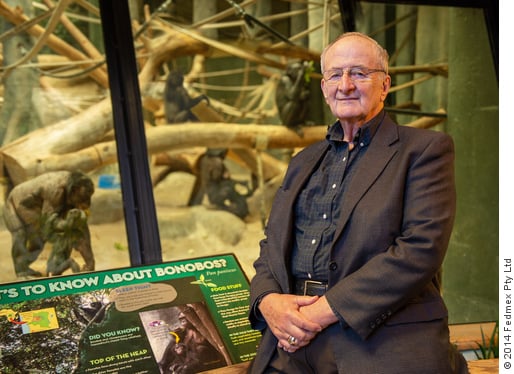
Professor Harry Prosen in front of the bonobo enclosure at the
Milwaukee County Zoo, Wisconsin, USA, in 2014
And so this is an illustration of the extraordinary empathy bonobos have; this is bonobo zoo-keeper Barbara Bell of the Milwaukee County Zoo: ‘“Adults demonstrate tremendous compassion for each other”…For example, Kitty, the eldest female, is completely blind and hard of hearing. Sometimes she gets lost and confused. “They’ll just pick her up and take her to where she needs to go.”’ (Chicago Tribune, 11 Jun. 1998). That’s just amazing—she’s completely blind but they look after her.
This quote from primatologist Sue Savage-Rumbaugh: ‘Bonobo life is centred around the offspring. Unlike what happens among common chimps, all members of the bonobo social group help with infant care and share food with infants. If you are a bonobo infant, you can do no wrong…Bonobo females and their infants form the core of the group’ (Sue Savage-Rumbaugh & writer Roger Lewin, Kanzi: The Ape at the Brink of the Human Mind, 1994, p.108 of 299).
So it’s a female-role focused, nurturing society, and they’ve developed this tremendous compassion and integrativeness.
This is from the filmmaker of the French documentary Bonobos, Alain Tixier: ‘They’re surely the most fascinating animals on the planet. They’re the closest animals to man.’ 98.7% of their DNA is the same as ours. And from the film’s animal advisor, Patrick Bleuzen, who remarked: ‘Once I got hit on the head with a branch that had a bonobo on it. I sat down and the bonobo noticed I was in a difficult situation and came and took me by the hand and moved my hair back, like they do. So they live on compassion, and that’s really interesting to experience.’
And what about this one: the researcher Vanessa Woods who has been studying bonobos in the Congo Basin says that ‘Bonobo love is like a laser beam. They stop. They stare at you as though they have been waiting their whole lives for you to walk into their jungle. And then they love you with such helpless abandon that you love them back. You have to love them back’ (‘A moment that changed me – my husband fell in love with a bonobo’, The Guardian, 1 Oct. 2015).
So Harry, can you just tell us a little bit about the bonobo Brian at the Milwaukee County Zoo, about your therapy and how you managed to help him?
Harry: Well, Brian was very deprived, to put it mildly, in another zoo where they were doing biological research on primates, which I detest. Anyway, they shipped him to the zoo here in Milwaukee and I got called by the president of the medical school where I worked one day, and he said they were about to euthanize this wee bonobo because not only does he not socialise, but he abuses himself and others; a very, very deplorable situation. The only funny part about it, and Jeremy I’ve shared this with you many times, was that I said, “Well, I’ll give him an appointment at three o’clock on Wednesday, send him over”, and they said, “You want a patient that’s going to crap on you, sit on you and pee on you?” and I said “I’d cop it”, and that’s how I started with Brian. Brian is now close to 20 and is the alpha male with many offspring and as empathic as he can be. Empathy is indescribable. Jeremy has visited the bonobos with me. Interestingly enough, there is some research that is beginning to suggest that there is an empathic brain set that the bonobos have and that we humans also seem to have as well. It’s very early research, but ties in very much with what you’re saying.
Jeremy: Yes, so this bonobo was self-harming, and Harry used some mild drugs to start with, just to stabilise the situation. But Harry’s tremendous capacity for empathy with animals and humans is absolutely extraordinary. Another little example is that there was an elephant that died, and the other elephant was mourning and completely devastated by this, and so was the zoo-keeper of the elephant that died, and they called on Harry to see what he could do for them. This is how empathetic Harry is: so he comes in to assess the situation, and what he did was he got the elephant that was in mourning and distressed to put its trunk over the shoulder of the zoo-keeper, and it was that act of empathy between the two that healed them both. Is that right, Harry?
Harry: Yes, the elephant was depressed and the keeper of the other elephant was depressed, and we got the live elephant in front of the keeper and the elephant put its trunk on the shoulder of the depressed girl and they both had their depression seemingly disappear. They were healed.
Jeremy: That’s just a tiny couple of examples of Harry’s extraordinary empathy and why we’re such good mates. I can talk to Harry and just hearing his voice is so calming always because this is such a tough job, and he looks after me spiritually and we’re just such good friends. He just loves this information because it’s finally made sense of all the things he’s looking at, and as you can see from those early examples that he’s used to therapise animals, not just humans. So the counselling he’s done throughout his life is incredible and he’s still teaching, and students are very lucky to get access to Harry because what he knows and what he can share with them, about how therapy should really work, is incredible. So you can see that bonobos are extraordinarily loving.
But interestingly, you’ll see lots of examples of common chimpanzees who are very competitive and brutal and still they haven’t got this nurturing under control yet. Everyone uses the examples of common chimpanzees chasing and tearing apart Colobus monkeys and still eating meat. Bonobos are called ‘The Forgotten Ape’, because again we couldn’t face the truth of how loving they were because whilst we couldn’t defend our loss of love, obviously it was too unbearable to admit that truth.
This is really, really amazing; this is a picture of a group of bonobos resting on a grassy glade. It perfectly equates with the description that Plato gave earlier about what life was like for humans back in the Golden Age of natural togetherness: ‘And they dwelt naked, and mostly in the open air, for the temperature of their seasons was mild; and they had no beds, but lay on soft couches of grass, which grew plentifully out of the earth’ (The Statesman, c.350 BC; tr. B. Jowett, 1871, 273). So that was before anyone even knew about bonobos, apart from the people living in the Congo Basin, and yet Plato knew exactly what life was like back then.
Clearly we have perfect instinctive memory (if we don’t choose to deny it) of what life was like before ‘the fall’, before we became corrupted and gained consciousness, because Plato didn’t know of the existence of bonobos, yet he knew exactly what life was like before ‘the fall’. The bonobos in the photo are naked, she hasn’t got a bra on or anything, she’s flopping around and no-one’s worried and no-one’s ogling anyone. This is before upset developed and they’re all one big roly-poly family.
Sir Laurens van der Post’s books on the Bushmen resurrected the truth that humans once lived happy, loving, harmonious, innocent-of-upset lives.
The South African writer Sir Laurens van der Post (1906–1996) was horribly persecuted, like we have been because we dared to dig up such truths as that nurturing is what made us human and that we once lived cooperatively and lovingly. Sir Laurens van der Post bravely acknowledged this past state of innocence, and he used the Bushmen of the Kalahari as his vehicle to reveal this forbidden truth that we did live cooperatively, because he spent time with the Bushmen and could see that they could still laugh and they’re still empathetic. This is what he’s written in Testament to the Bushmen—one of the most astonishing little passages you’ll ever hear: ‘This shrill, brittle, self-important life of today [the angry, egocentric and alienated life of humans today] is by comparison a graveyard [the world we’re living in now is by comparison a graveyard] where the living are dead and the dead are alive and talking [through our instinctive self or soul] in the still, small, clear voice of a love and trust in life that we have for the moment lost…[there was a time when] All on earth and in the universe were still members and family of the early race seeking comfort and warmth through the long, cold night before the dawning of individual consciousness in a togetherness which still gnaws like an unappeasable homesickness at the base of the human heart’ (Testament to the Bushmen, 1984, pp.127-128 of 176).
An ‘unappeasable homesickness at the base of the human heart’ to return home, but we can only return home when we have found understanding of the human condition, and that’s what this has done; this explanation finally redeems us and allows us to return to the Garden of Eden-state of original innocence, so our ‘homesickness’ and loss of soul can be appeased and we can return home.
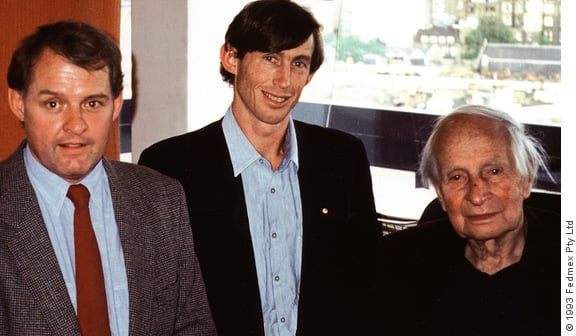
Sir Laurens loved Jeremy’s work, and Tim Macartney-Snape and Jeremy went to the UK
and spent some time with him in 1993.
This is another quote from Sir Laurens van der Post about the sensitivity of the Bushmen: ‘He [the Bushmen] and his needs were committed to the nature of Africa and the swing of its wide seasons as a fish to the sea. He and they all participated so deeply of one another’s being that the experience could almost be called mystical. For instance, he seemed to know what it actually felt like to be an elephant, a lion, an antelope, a steenbok, a lizard, a striped mouse, mantis, baobab tree, yellow-crested cobra, or starry-eyed amaryllis, to mention only a few of the brilliant multitudes through which he so nimbly moved. Even as a child, it seemed to me that his world was one without secrets between one form of being and another’ (The Lost World of the Kalahari, 1958, p.21 of 253). The Bushmen of the Kalahari are still alive, and they’re members of homo sapien sapiens or modern humans. So if that’s how sensitive they are, extrapolate back to the bonobo stage. How much sensitivity have we lost and how much sensitivity did we once have?
This is another absolutely astonishing quote from the Russian novelist Fyodor Dostoevsky, who’s written about our intuitive remembrance of our species’ bonobo-like time in innocence. He’s written, like Plato, Hesiod and Moses did, of this lost state of innocence. This is a contemporary thinker/writer who’s stopped living in this cave of denial and dishonesty and let the truth out that is within us all about this marvellous innocent time our species must once have lived in. He describes a time when: ‘The grass glowed with bright and fragrant flowers. Birds were flying in flocks in the air, and perched fearlessly on my shoulders and arms and joyfully struck me with their darling, fluttering wings. And at last I saw and knew the people of this happy land. They came to me of themselves, surrounded me, kissed me. The children of the sun, the children of their sun—oh, how beautiful they were!…Their faces were radiant…in their words and voices there was a note of childlike joy…It was the earth untarnished by the Fall; on it lived people who had not sinned [in any honest thinking you’ll find this recognition of life prior to consciousness]…They desired nothing and were at peace; they did not aspire to knowledge of life as we aspire to understand it [they weren’t conscious], because their lives were full. But their knowledge was higher and deeper than ours…but I could not understand their knowledge. They showed me their trees, and I could not understand the intense love with which they looked at them; it was as though they were talking with creatures like themselves…and I am convinced that the trees understood them. They looked at all nature like that—at the animals who lived in peace with them and did not attack them, but loved them, conquered by their love…There was no quarrelling, no jealousy among them…for they all made up one family’ (The Dream of a Ridiculous Man, 1877).
This description of being ‘conquered by their love’ is so like the description given by the bonobo researcher Vanessa Woods, when earlier it was mentioned that she said the bonobos ‘love you with such helpless abandon that you love them back. You have to love them back.’
Again, we see how accurate our memory is, if we don’t deny it, of what life was like ‘before the fall’. So here’s Dostoevsky talking about this golden period in our past; and the depth of their love, which is what van der Post talked about, of the Bushmen of the Kalahari ‘know[ing] what it actually felt like to be a... baobab tree’. And Vanessa Woods said they were so loving—‘conquered by their love’ is the same description that bonobos ‘love you with such helpless abandon that you love them back. You have to love them back.’
So we can see that primatology and anthropology is all catching up with mythology; we can make sense of the whole riddle now. Because once you crack the riddle of the human condition, find the defence for ourselves—the good reason for why we’re good and not bad—then all these truths can be admitted. So this is why this fourth video is so incredibly powerful because, remember earlier, I described Earth as being encased in a steel cladding that stops any light/truth getting in. What I’m doing here, minute by minute, is I’m breaking that great denial. I’m spilling the beans, I’m letting the truth out, and that’s the beauty. The longer you listen to these talks I do or read my books, you’ll find that they’re all written from outside the cave of denial, and this honesty is so therapeutic because it’s all based on us being defended now. We don’t have to lie anymore because we’re now defended, we’re good and not bad. So now we can afford to admit the sensitivity of our soul.
I do these little drawings or scribbles I’m famous for, and I can’t draw at all if I try, but if I just draw without thinking and let it come from my soul, it just comes out and they’re magic. You can see these little scribble drawings all through my writing and that’s just my instinctive self speaking. Van Gogh and other great artists like Pablo Picasso talk about having to paint like a child until they could let the truth out; Picasso famously said, ‘It took me four years to paint like Raphael, but a lifetime to paint like a child.’ Basically all their efforts are really trying to cut a window back to their soul. They’re trying to break through the facade of denial and deadness of our real state and let the truth out, and they get very good at it but at great cost. Van Gogh suicided but he taught the world to discover light. We’re so dead we couldn’t see light and he painted light, he’s sort of a schizophrenic, and through that ‘shattered defence’ he painted these amazing pictures. All the colours are painted in bursts of light, like they are light; you’re seeing light for the first time when you look at his paintings.
But it was very painful to go too near the truth too quickly. This understanding can be very confronting; people try to get into it too quickly and tend to get overly confronted, and start to react against it, they get angry and defensive without realising what they’re doing because so much truth is coming flooding out, even though it’s all based on a defence, it’s still truth. So when the blinds are drawn on the human condition as it were, this turnaround moment is a difficult time for the human race because the truth is very confronting. All the dishonesty of living in the cave, with the savage instincts excuse, and there are so many crap theories of how we developed our moral soul, it’s unbelievable, you could fill rooms full of them. [See Video/F. Essay 14: The false ‘savage instincts’ excuse leads to the extinction of humans.]
But the obvious answer to how we developed our moral soul was through nurturing, and, in fact, about five years after Darwin, this nurturing explanation was presented by the American philosopher John Fiske. It was described at the time as an even more significant breakthrough than Darwin’s idea of natural selection, but you haven’t heard about it because it was too condemning for mothers. No human since the upset state of the human condition has emerged has been able to develop anything like this unconditional selflessness to nurture each new generation. Since Adam Stork got upset he can’t nurture his offspring because he’s now full of competitive anger and aggression. So we’ve been ashamed of our inability to adequately nurture our offspring, and so as I said, parents would rather admit to being an axe murderer than a bad mother or father. So John Fiske’s truth was buried [which you can read about in par. 488 of FREEDOM], but it was a more important truth than natural selection!
But again, first of all you’ve got to defend humans and then and only then can you expose them, but even that exposure process is very confronting, and we were attacked viciously because it’s too confronting and people want to push everyone back in the cave. [See www.humancondition.com/persecution.]
Part 2 Resignation
Catherine Yeulet/iStockphoto; yamasan/AdobeStock; Al Troin/AdobeStock
Stanislaw Mikulski/AdobeStock; mitarart/AdobeStock
Mygate/Shutterstock; Susan Stevenson/AdobeStock; Sabphoto/AdobeStock
So now we’ve got it fresh in our mind that we humans once lived cooperatively and lovingly in a harmonious, peaceful state. And now we’re absolutely warlike competitors and ferocious warriors, and mad and psychotic and alienated, mad people—just the complete opposite of that loving, wonderful, sensitive state where they could talk to the trees. We’ve lost all of that, we’re just shrivelled up like a pea, that’s how insensitive we are and how dead we are. But how heroic are we to endure all of that and still be on our feet and still all together in this room despite the immense upset that’s within us all from 2 million years of heroic searching for knowledge. The more you immerse yourself in the wonder of our condition from this redeeming and dignifying and healing understanding, the more all that angst flows out of us.
The shame from having destroyed the Garden of Eden, turning utopia into dystopia—and it is a dystopia, this planet is damn-nearly about to destroy itself—the shame of our condition, and not being able to explain and defend it truthfully, has been astronomical. Now listen, when children come into the world, they’re not born alienated and blocking out the truth, they start afresh each new generation. And so they start thinking about the imperfection of human life; so around 12 years old—and we have a demarcation at this stage where we send them to high school from primary school—there’s a complete shift. Children go from being a protesting about-the-imperfection-of-human-life ‘naughty nines’ stage, to suddenly becoming sobered and introspective at around age 12 because they’re starting to think about the imperfections of human life. And that question about why the world isn’t right deepens and deepens, until around age 15 when they realise it’s such a suicidally confronting subject that they have to block it out—resign themselves to living in denial of the human condition. Thereafter they’re part of everyone ‘living in the cave’, to use Plato’s analogy; it’s Plato’s world of dishonest living, of living in pretence that everything’s fine—you’re living every second of your day avoiding the human condition, every second of your day trying to maximise a win to bring you relief from the insecurity of that condition.
Now that I’ve talked about the sensitivity of the bonobos, the sensitivity of original humans, and how corrupted we have become since, you can see in that contrast just how much shame and guilt there is in the human condition, enormous shame and guilt. Every bit of our behaviour is to try to counter that insecurity, to try to get some win, some reinforcement, because how ashamed must we be for having destroyed paradise and never understood why? [Read more about this enormous shame and guilt in The Great Guilt that causes the Deaf Effect.]
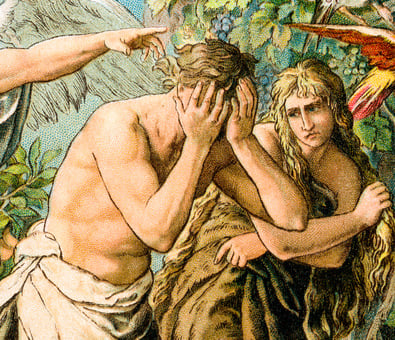
Detail from Old Testament Stories, published by Society for
Promoting Christian Knowledge, London c.1880
The shame within us and the guilt of the human condition is astronomical and it’s only now that that great guilt of the human condition has been lifted off the shoulders of humans. Prior to this day, prior to this understanding, prior to FREEDOM, there was no relief, so the shame was astronomical. All we had was to block it out and deny it, so we sought reinforcement, power, fame, fortune and glory as much as we could get to relieve ourselves from the shame of our condition and feel good and not bad. We blocked it all out, we pretended we have a savage past, using excuses like the Romans did, that the Gauls and the Barbarians from up north were brutish, and the Romans were all civilised. The Romans were actually more upset than the Barbarians; the Barbarians were still in the adventurous 20-year-old-stage like the Vikings, they weren’t embattled punch-drunk 50-year-olds like the Romans-equivalent. But the Romans turned it all around and said ‘No, they’re all savages that live up north of the Rhine, and we’re civilised and we should civilise them’—but it’s just another reverse-of-the-truth lie, all the time; it’s all ‘cave speak’. [See chapter 8:12 of FREEDOM for explanation of the ‘stages of ages’ that occurred during humanity’s journey through its adolescence.]
What I’m trying to get you to immerse yourself in is just how much shame there is underlying the human condition that’s driving all our behaviour and need for reinforcement. We’re so hungry for reinforcement because we’re so insecure. Why are we insecure? Because we destroyed paradise. We killed our soul. So we need massive reinforcement all the time. It totally owns our life. No wonder we can’t talk to the trees anymore because every second of every day we’re trying to combat this insecurity within us; it saturates our every behaviour. The buttons on the coat I’m wearing, the way I’m sitting—all this crap is all designed to insulate us against our shame of the human condition.
But now we can see it very clearly—that’s the magic of this fourth video. You read through everything we’ve just gone through and you just sit there and think “Fuck, God, we were innocent, and Jeremy’s right, the instinct vs. intellect is the real explanation. Holy dooley, of course, the shame must be incredible. That’s why we’re so messed-up and need reinforcement in everything we do and can’t tolerate any criticism, why we get angry at the drop of a hat. Shit, woah, it all makes sense.” As I said, this has smashed, absolutely smashed, that case of steel around this planet. This little boy has gone out there from Mumbil, where I grew up in the bush [Australian countryside], and smashed that casing to smithereens, and let the truth in everywhere so it just floods the planet, and this is as tight a presentation as you’re getting in Video 4 of that smashing. I’ve just naively said: “Oh, you know, Moses said we once lived in the Garden of Eden and that makes sense; oh, and Hesiod’s quote is pretty good; and Plato said, yes, we had a golden age—wow. So how did we get that? Through nurturing—well, that makes sense. And there’s the bonobos actually doing that, sitting all together on the grass and not wearing bras any clothing; God, it’s all true.” It’s just smashed the whole facade of this denial, this dishonest world we live in.
That’s what I’m trying to point out, the contrast between this innocent state that our species once lived in, and the shame and the guilt of our present corrupted state is astronomical. But every new generation has to try to make sense of that, so at age 12 they’re starting to think about it seriously and they become introverted, but by the time they’re 13 or 14 they’re really deep into the human condition and really smashed up about it, because they’re still thinking honestly and trying to face it down. Eventually they learn that they have to block it out, resign to living in denial of the human condition, it’s the only way to cope, and then they’re part of the adult world where everyone’s bullshitting. So they switch from being depressed adolescents at around age 14 or 15 and then they become extroverts, getting drunk all day, girls buying more blue shoes, the blokes trying to get a win with their footy, whatever it takes. Everyone’s on a bender to get away from the human condition, there and forever more, and that just goes through a whole lot of journeys which you can read about in chapter 8 of FREEDOM: The Greatest, Most Heroic Story Ever Told: Humanity’s Journey from Ignorance to Enlightenment.
Resignation is the most important psychological event in human life. Honestly, the day after kids resign you can hardly get them to talk about it or even remember it. Two days later they won’t even remember they went through it. So people say “I didn’t resign”, but months later they ring up and say “Oh look, I actually found a poem I wrote when I was going through Resignation.” [See F. Essay 30: Resignation for examples of such poems.]
So these are kids [referring to the image at the start of this part] going through this crisis of trying to make sense of themselves—and we [adults] are dishonest and won’t admit they’re going through Resignation, because you have to admit that we were once innocent and now we’re corrupted and we can’t defend that so we don’t even admit it. So we just say, “Oh, it’s puberty blues, they’re just going through the upheavals of puberty”, which is just crap! Humans have been going through puberty since time immemorial, since we were microbes and sexual reproduction began, so we’re massively adjusted to that, what we’re not adjusted to is the human condition. So it’s a depression, ‘puberty blues’ describes a depression, ‘blues’, it’s depression they’re going through. These children are wrestling with the human condition that adults have long since refused to go near, “I don’t want to go near that dark corner!”
This image says, ‘It’s not a phase Mom. This is who I really am’—now how honest is that! See this wolf with green eyes and a green tongue, this is a little girl and she’s saying “Mom, it’s not a phase”, and her parents are saying “Oh, you’ll get over it, I went through that, we all go through that stage.”
I was watching a film recently on J.D. Salinger who wrote The Catcher in the Rye (1951). He sold millions and millions of copies, but he ended up being a recluse. So I was saying that this will be interesting to see how honest the film will be about what Salinger wrote about, about this little boy called Holden Caulfield who is like one of these little kids struggling with Resignation. Eventually Holden meets this guy in a garage who actually ‘spills the beans’ and admits the truth. He says, “Holden, there’s a lot of us went through that and there’s no way out of it. You’ve just gotta get on with life.” He spoke of men who ‘at some time or other in their lives, were looking for something their own environment couldn’t supply them with…So they gave up looking [they resigned]…[adding] you’ll find that you’re not the first person who was ever confused and frightened and even sickened by human behaviour’ (pp.169-170). He actually admitted that that state existed and it’s such a relief to Holden Caulfield.
The key line in the whole of The Catcher in the Rye is: ‘the only thing that I’d really like to be’ is a ‘catcher in the rye’ at the edge of the cliff, catching ‘thousands of little kids’ before they have to jump ‘over the cliff’ (ibid. p.156). That cliff is Resignation. Once you give in to living in denial of the human condition you’re living the rest of your life dishonestly, off a false base where everything is crap. Salinger wants to stop children from dying psychologically when they have to resign now. So I’m watching this movie and thinking it will be interesting but it’s just crap, crap, crap, crap, crap, crap, crap. There was nothing about Resignation or anything like it, except for a little part of an interview with Salinger when he said, ‘Oh, it’s about loss of innocence’, but apart from that there’s just nothing in it. That’s how insecure we are, we couldn’t even deal with what his book is about. So he wrote this book about Resignation, but we don’t recall Resignation or even know what was really happening, but at least young people could read it and identify with what’s happening. Holden complains of feeling ‘surrounded by phonies’ (p.12 of 192) and ‘morons’ who ‘never want to discuss anything’ (p.39), of living on the ‘opposite sides of the pole’ (p.13) to most people, where he ‘just didn’t like anything that was happening’ (p.152), to wanting to escape to ‘somewhere with a brook…[where] I could chop all our own wood in the winter time and all’ (p.119). He essentially said, “I just want to go on and live by a brook and build myself a little log cabin, I don’t want anything to do with this mad world”.
So Mom’s saying, “It’s just a phase, kid, you’ll get over it, we all went through it” which is all dishonest cave-speak. And the little girl is saying, “No, it’s not a phase, Mom, this is who I really am, I’m mad, I’m really mad, I’m a really messed-up human”, which is dead right. We just saw it; the sensitivity of the bonobos that love you from afar, ‘love you with such helpless abandon that you love them back’, and even the Bushmen could ‘know what it actually felt like to be a…baobab tree’, and how messed up are we since then, massively messed up. This little girl is being honest saying, “Mom, I’m trying to look at who I really am and I can’t cope, it’s terrifying, I can see how messed up I am.” Hesiod and Dostoevsky wrote about our innocent soul—they just let the truth out that’s in us all. When you’re unresigned, when you still haven’t learned to resign and block out the human condition, you can see all that terror; you’re still looking at the world honestly. This is a little girl looking at the world honestly saying, ‘This is who I really am’, “I’m that messed up compared to those innocent bonobos or Bushmen.”
The human condition has been absolutely unbearable, because how could we cope with trying to face that down. That’s what these kids are trying to do, they’re trying to face down the truth that we’ve lost all that innocence, that we’re so incredibly brutalised and messed-up, and totally unable to defend it. You can’t do that, you can’t stay on your feet, you’ve got to resign, you’ve got to give in and block it out.
Occasionally great poets have written about Resignation, and lots of people write poems. One of our members here, Εrіc Cοοke, gave us a poem he wrote when he was a kid. He wrote: ‘Growing Up: There is a little hillside / Where I used to sit and think / I thought of being a fireman / And of thoughts, I thought important / Then they were beyond me / Way above my head / But now they are forgotten / Trivial and dead.’ Those ‘thoughts’ are ‘trivial and dead’—“I won’t go near there”.
So a lot of people dig up old poems they’ve written and some of them are astonishing.
This is in effect a Resignation poem, and it is really deadly—No Worst, There Is None, written by Gerard Manley Hopkins in 1885:
NO worst, there is none. Pitched past pitch of grief, / More pangs will, schooled at forepangs, wilder wring. / Comforter, where, where is your comforting? / Mary, mother of us, where is your relief? / My cries heave, herds-long; huddle in a main, a chief / Woe, wórld-sorrow; on an áge-old anvil wince and sing— / Then lull, then leave off. Fury had shrieked ‘No ling- / ering! Let me be fell: force I must be brief’.
O the mind, mind has mountains; cliffs of fall / Frightful, sheer, no-man-fathomed. Hold them cheap / May [any] who ne’er [have never] hung there. Nor does long our small / Durance deal with that steep or deep. Here! creep, / Wretch, under a comfort serves in a whirlwind: all / Life death does end and each day dies with sleep.
To explain the highlights: ‘No Worst, There Is None’, so he’s talking about the depression when you try to face down the human condition and how unbearable it is, ‘No Worst, There Is None’, worse than death. ‘Comforter, where, where is your comforting? Mary, mother of us, where is your relief?’, just appealing to the mother of Christ for some help. ‘Woe, wórld-sorrow; on an áge-old anvil wince / O the mind’ And this next line is Sir Laurens van der Post’s most favourite quote, and I’ve read everything Sir Laurens has written: ‘O the mind, mind has mountains; cliffs of fall / Frightful, sheer, no-man-fathomed’, which is incredibly honest. ‘O the mind’, when the mind wants to think deeply about the human condition it has these ‘cliffs of fall [terrifying depression] Frightful, sheer, no-man-fathomed’, we have no understanding of the human condition, but now we have, that has been solved; ‘No-man-fathomed’, it has been fathomed. ‘Each day dies with sleep’, the only relief you get from the human condition is when you go to sleep, that’s the real reality of it.
People ask me to explain a near-death experience and they think it’s all strange lights and all these things. A near-death experience is just what happens if you think you’re going to die. If someone falls off a cliff, or climbers like Timmy fall into a snowdrift, they think they’re going to die but they don’t die. So when they dig them out of the snowdrift they say “God, it was most amazing place I’ve visited.” What’s happening is that because they think they’re going to die, the brain gives up worrying as there’s no point in worrying anymore. They give up thinking about the human condition. That’s how preoccupied we are and suddenly when the mind gives up being worried about the human condition everything just opens up, all the magic, all the beauty of the world is accessible. Instead of the shrunken pea of what we really are, the world is all accessible. So that’s why they had this magic experience, because the brain gives up, that’s how preoccupied our mind is by the human condition. That’s how magnificent this world is when you’re free of it, if you get transformed. This is where the excitement you can access comes from, as Dougie [Lobban] here has written about in his Transformation Affirmation. You can read his affirmation and all the other affirmations on our WTM website; Dougie’s is a lovely one.
The Beatles song Let It Be (1970) by Paul McCartney is all about Resignation.
When I find myself in times of trouble, Mother Mary comes to me /Speaking words of wisdom, let it be /And in my hour of darkness she is standing right in front of me / Speaking words of wisdom, let it be / Let it be, let it be, let it be, let it be / Whisper words of wisdom, let it be
And when the broken-hearted people living in the world agree / There will be an answer, let it be / For though they may be parted, there is still a chance that they will see / There will be an answer, let it be / Let it be, let it be, let it be, let it be / Yeah, there will be an answer, let it be / Let it be, let it be, let it be, let it be / Whisper words of wisdom, let it be / Let it be, let it be, let it be, yeah, let it be / Whisper words of wisdom, let it be
And when the night is cloudy there is still a light that shines on me / Shine until tomorrow, let it be / I wake up to the sound of music, Mother Mary comes to me / Speaking words of wisdom, let it be
Let it be, let it be, let it be, yeah, let it be / There will be an answer, let it be / Let it be, let it be, let it be, yeah, let it be / There will be an answer, let it be
Interestingly, Gerard Manley Hopkins’s poem has the line, ‘Mary, mother of us, where is your relief?’ This is a desperate plea to Christ’s mother for help, and Let It Be uses the same words, ‘Mother Mary comes to me’. ‘When I find myself in times of trouble, Mother Mary comes to me / Speaking words of wisdom, let it be / And in my hour of darkness she is standing right in front of me / Speaking words of wisdom, let it be’. Leave it alone, give up, and that’s what Holden Caulfield was eventually told by the adult—he said to him “Mate, you’ve got to quit, you’ll drive yourself crazy trying to keep facing down what you’re doing”, ‘There will be an answer’ in the future, see ‘Let it be’—there’s so much truth in this: ‘whisper words of wisdom, let it be, let it be’, leave it alone, give up, ‘there is still a light that shines on me / Shine until tomorrow’ when ‘there will be an answer’. What a desperately sad but truthful poem this is, ‘There will be an answer’, one day there’ll be an answer, but until then ‘let it be, let it be, let it be, let it be’, ‘Mother Mary’. That’s a desperate appeal.
The next one is William Blake’s 1794 poem, The Tyger.
Tyger Tyger, burning bright, / In the forests of the night; / What immortal hand or eye, / Could frame thy fearful symmetry?
In what distant deeps or skies. / Burnt the fire of thine eyes? / On what wings dare he aspire? / What the hand, dare seize the fire?
And what shoulder, & what art, / Could twist the sinews of thy heart? / And when thy heart began to beat, / What dread hand? & what dread feet?
What the hammer? what the chain, / In what furnace was thy brain? / What the anvil? what dread grasp, / Dare its deadly terrors clasp!
When the stars threw down their spears / And water’d heaven with their tears: / Did he smile his work to see? / Did he who made the Lamb make thee?
Tyger Tyger burning bright, / In the forests of the night: / What immortal hand or eye, / Dare frame thy fearful symmetry?
Everyone would have been given an assignment at school to write an essay about William Blake’s The Tyger. And the kids write, “Well, the tiger’s got fierce fangs, so you want to hide from them, especially at night time when they can see you and you can’t see them”, all this sort of stuff, but it’s actually metaphorical. If we now look at this poem in terms of understanding what Resignation is: ‘Tiger, Tiger, burning bright / In the forests of the night’—yes, while we repress awareness of the terrifying issue of the human condition it burns bright in our subconscious awareness. ‘What immortal hand or eye, Dare frame thy fearful symmetry?’, what eye could look at that fearful subject? The longer you get associated with this information the more you’re astonished by how I managed to go into this and look at this forbidden subject. The reason I have been able to do so is because I had an incredibly sheltered life and went to these very precious schools and other things, which allowed me to look at this forbidden subject. ‘What …hand, dare seize thy fire’, the fire of the confrontation, that ‘could twist the sinews of thy heart’. ‘The [terrible] hammer’, ‘In what furnace …thy brain?’ No one can ‘Dare its deadly terrors clasp…did he who made the lamb make thee?’—that’s the key line in this. This is the very heart of the issue, that we are seemingly unrelated to the lamb and all its innocence: ‘Did he who made the Lamb make thee?’ [You can read more analysis of Blake’s poem in F. Essay 10.]
The author Alan Paton [Cry, the Beloved Country] was invited by TIME magazine to write an essay about apartheid in South Africa and he sent in a piece that had nothing to do with apartheid, but they published it. In the article, Paton, who was about to die, said the question he wanted answered, what he wanted solved, is what ‘Blake…asks in the simplest of words…why “did he who made the Lamb make thee?…Did he smile his work to see? / Did he who made the lamb make thee?”’ (25 Apr. 1988). ‘How can God find a way to smile on us?’ So that’s a desperate man on his death-bed, because it was the last thing he ever wrote: ‘Did he who made the Lamb make thee?’ How could we be reconciled with that wonderful state of innocence?
So these are my little scribbly drawings, and I love them because they’re all so real.
This one is about Resignation. So the first image on the left is an adolescent being confronted by innocence, his innocent conscience is telling him “You’re a complete mess.” So at Resignation [middle image] he starts to block it out, and then he goes for power, fame and glory thereafter, and he’s into that big time. So the image on the right shows him wearing a crown and he’s conquering everything and he’s won all the cups. All his self-preoccupation is basically selfish and it’s causing immense suffering of the unfortunate, and so on. So that’s what happens at Resignation, in a nutshell.
Here’s another of my little drawings.
I said from the outset that we have to use the artificial, dishonest defence for ourselves that we have competitive and aggressive, brutal savage instincts, when in fact we have cooperative and loving moral instincts, so we use all these lies. All the scientists are suffering from the human condition, like everybody else, so they’re all living in Plato’s cave of dishonesty, and they’re propagating all these dishonest excuses for every damn thing. Like, that there’s no difference between men and women; that we have savage instincts; that nurturing has nothing to do with us; that nurturing is not the prime-mover in human development, etc., so it’s massively dishonest. But that’s what scientists had to do because science couldn’t confront the truth until we found the truth, so it’s been mechanistic or reductionist. We focused down on the mechanisms to a reduced view of the world, because the holistic truthful view was too confronting, such as the truth of our integrative truthful past, and that integration is the meaning of life—lots of truths had to be denied. So it focused down on the details or mechanism of the world, finding all the pieces of the jigsaw, like Darwin found the idea of natural selection, because that was their job, in the hope that one day someone would come along and could put all those big jigsaw pieces together truthfully and explain the human condition—someone who could confront the truth. So that’s the job I’ve done, and science is the liberator because it found all the pieces that make the clarification possible. There’s always been sheltered, relatively innocent people around, but they couldn’t do anything until science found out about genes and nerves and how they work and only then could they put all the bits together. So science is the liberator, the Messiah, the liberator of humanity because it found the clues even though it was doing it dishonestly by hiding it, using all these bullshit explanations. So mechanistic science, or reductionist science, and holistic thinking both had a role to play. Holistic thinking has the concluding role to play, mechanistic science does all the hard work—because it can’t confront the truth of this soulful, cooperative, loving, moral, ideality because it’s too condemning. Science has been absolutely full of shit, it’s absolutely up to the eyeballs with all this dishonesty. Great university castles and ivory towers are just full of it, and you won’t get any truth out of them. Nearly everything does relate to the human condition, yet anything that relates to the human condition will be a fearful stack of lies. [See Freedom Essays 14 & 63 on the dishonesty in science.]
The most truthful thinker I’ve come across is Christ. He said it—this is from par. 611 in FREEDOM: “No wonder Christ angrily called the denial practising academics of his day, ‘You blind fools!… You blind guides!…you hypocrites!…You snakes! You brood of vipers! How will you escape being condemned’ (Matt. 23:17-33), and he said, ‘Woe to you experts in the law, because you [your dishonesty] have taken away the key to knowledge’ (Luke 11:52)” because it’s practising dishonesty. And Christ said, ‘Do you see all these great buildings?…Not one stone here will be left on another; everyone will be thrown down’ (Bible, Matt. 24:2; Mark 13:2; Luke 19:44, 21:6). If you read the final passages in FREEDOM it talks about this dishonest world that we’ve been living in is all going to come crashing down, because it’s replaced by the truth. This is judgment day, exposure day, honesty day, shake-down day, come-clean day. It’s the time when we break through to the truth and suddenly all the dishonesty is obsoleted and we don’t need it anymore. And Christ could see that. He was enraged by the intellectuals walking around with their mitres on or whatever they did in those days, saying “I wrote six papers for the New York Times”, or the Israeli equivalent. And they would have got some academic title and they would be swanning around with that on a badge on their coat and God knows what. There were experts in this and that and Christ said ‘you brood of vipers’, you’re just propagating lies. And they couldn’t get the message, so he ramped it up and said, “Listen, see all these buildings, not one is going to be left standing”, and it won’t, but it’s all done compassionately through understanding because it’s all obsolete. We’ve found understanding of the human condition so we don’t have to continue down that road.
So this is the fork in the road—each person is faced with it, and the entire human race is faced with it. Now that we’ve found understanding—the biological defence for ourselves—the old artificial forms of reinforcements of power, fame, fortune and glory are now obsoleted by the actual reinforcement of ourselves of the understanding that we are good. It would be irresponsible to continue down that old road. Sure, we are habituated to that old road, but it leads to the extinction of the human race. (This image shows them all becoming extinct, because it’s just a pile of lies. Again, if you want to read about the dishonesty of science and where it’s leading us to, which is straight to extinction, see Video/F. Essay 14.) And your world shrinks to the size of pea because you can hardly see anything versus this other road which leads to everything. The poet T.S. Eliot wrote The Hollow Men, which is what happens at the end of that materialistic road. In the ‘old world’ when we didn’t have the defence for ourselves, you could take up some New Age course and try to feel good about yourself, but really you had to get ‘back in harness’ because there was nothing else to do; you just had to continue with the corrupting search for knowledge in the hope that one day that knowledge might lead to the liberation of the human condition, which it has now done. So you had to get ‘back in harness’ and just head on down this old road, but now that path [towards extinction] is obsoleted and we go down this new path now, which is wonderful because everything becomes exciting and the whole world opens up, and we head back towards our sensitive soul.
If you want to read The Hollow Men by T.S. Eliot, it describes just what life is for older men. They can’t talk to each other, because if they start saying anything apart from the weather or the football match they’ll be treading on the other person’s ego. They’re so egocentric and fragile, they are aware that all the other blokes are fragile, so no-one can talk to anybody, so they’re sort of filled with this straw in their heads because they’re just dead, they’re just these hollow men. But now we can go down this new road. We take the right road; we live off that all-meaningful and all-exciting new way of living and leave our old dead world behind forever, which is the Transformed State that I’ll get to in a minute.
That’s the back-bone of the fourth video, and why it’s so powerful because it just shatters all the dishonesty at its core. It talks about the bonobos and Dostoevsky’s remembrance of our species’ bonobo-like time in innocence—a time when we could talk to the trees, and you could know that it’s all true if you’re halfway honest. You know that we’re now defended and so the whole edifice of denial can come crashing down and we can get on and fix the world up.
All these artificial ways of fixing it up and patching it up are not going to do anything because they’re not dealing with the core problem. What I call pseudo idealism has run amok in the world because everyone’s desperate. For example, American universities are now saying that any dress code is sexist, so even saying that blokes wearing pants and girls wearing dresses is sexist, but there’s no dealing with why there’s any difference between men and women and where that all came from, which is a huge subject in my book because it was men that had to take up the sword of championing the ego, while the women stayed to nurture, because you can’t nurture and fight at the same time, so that demarcation of roles led to a tragic situation [see F. Essay 26 and F. Essay 27]. There are massive differences between the genders, as there are between different races in terms of how upset they are or how long they’ve been ‘in the trenches’ [see F. Essay 28: The end of racism]. All these are frightening truths in the ‘old world’, but they’re now all defended by understanding. All this pseudo idealism is just crazy, it’s a real sickness.
Part 3 Plato and the ‘Deaf Effect’
Now I want to introduce Plato, because he described having to resign. This is from Video/F. Essay 11 which talks about Plato’s cave.
In 360 BC Plato wrote: ‘I want you to go on to picture the enlightenment or ignorance of our human conditions’, which was the first time I’d ever seen the human condition mentioned. He says: ‘Imagine an underground chamber, like a cave with an entrance open to the daylight and running a long way underground. In this chamber are men who have been prisoners there’ (c.360 BC; tr. H.D.P. Lee, 1955, 514). Plato described how the cave’s exit is blocked by a ‘fire’ that ‘corresponds…to the power of the sun’, which the cave prisoners have to hide from because its searing, ‘painful’ ‘light’ would make ‘visible’ the unbearably depressing issue of ‘the imperfections of human life’ (ibid. 516-517), which is the issue of the human condition. Fearing such self confrontation, the ‘cave…prisoners’ have to ‘take refuge’ ‘a long way underground’ in the dark ‘cave’ where there are only some ‘shadows thrown by the fire’ that represent a ‘mere illusion’ of the ‘real’ world outside the cave. The allegory makes clear that while ‘the sun…makes the things we see visible’, such that without it we can only ‘see dimly and appear to be almost blind’, having to hide in the ‘cave’ of ‘illusion’ and endure ‘almost blind’ alienation has been infinitely preferable to facing the ‘painful’ issue of ‘our [seemingly imperfect] human condition’. So we’re living in that almost blind state of alienation and that’s how scientists are trying to make sense of the world, no wonder they can’t get any truth up. No wonder Christ got upset with them and said, ‘You blind fools!’, your castle is going to come down tomorrow. Plato understood that we had to hide in a cave and he’s an incredibly honest thinker.
Now what I want to introduce is this lynchpin problem for our project of the ‘deaf effect’, because clearly humans have been living in such terrifying fear of the human condition that when someone starts talking about it they go deaf. They can’t bear it because their whole life they’ve been practicing not watching it, not thinking about it. I start talking about the human condition and I’m saying “I know you’ve had to hide from it but it’s now defended, you can look at it”, but once you’ve resigned and you’re committed to hiding from the human condition and someone starts talking about it you’ll say, “No mate, I’m not going near it. I’m not even going to see if you have solved it. I’m too deaf. I’m too terrified.” That’s what we call the ‘deaf effect’, they can’t even read about the human condition. When they try to read my books nearly every human will say “It’s badly written”, “I can’t understand it”, “It’s too repetitive”, “Can you send me an executive summary”…we get it all the time. It’s too terrifying. They’re habituated to blocking out the issue of the human condition, so if someone wants to take them outside the cave they run a mile!
And Plato understood this ‘deaf effect’; this is 360 BC—as summarised in the Encarta Encyclopaedia—someone ‘escapes from the cave into the light of day’ and ‘sees for the first time the real world and returns to the cave’ to help the cave prisoners ‘Escape into the sun-filled setting outside the cave [which] symbolizes the transition to the real world…which is the proper object of knowledge’. For the description of what would happen when the ‘mess[enger]’ tries to ‘free’ the cave prisoners ‘into the sun-filled setting outside the cave’, Plato wrote that ‘it would hurt his [the cave’s prisoner’s] eyes and he would turn back and take refuge in the things which he could see [take refuge in all the dishonest, illusionary explanations for human behaviour that we have become accustomed to from human-condition-avoiding, mechanistic science, a description of which is given in Video/F. Essay 14], which he would think really far clearer than the things being shown him. And if he were forcibly dragged up the steep and rocky ascent [out of the cave of denial] and not let go till he had been dragged out into the sunlight [shown the truthful, real description of our human condition], the process would be a painful one, to which he would much object, and when he emerged into the light his eyes would be so overwhelmed by the brightness of it that he wouldn’t be able to see a single one of the things he was now told were real.’ Significantly, Plato then added, ‘Certainly not at first. Because he would need to grow accustomed to the light before he could see things in the world outside the cave’ (Prof. Robert M. Baird, ‘Plato’; see www.wtmsources.com/101).
Which they do; they can’t even read my book, they say “I cannot read it.” One bloke wrote to us and said, “My wife and I sat down and we read one page of your book over and over and over and over again in bed and neither of us could make any sense of it.” And it’s like that because that’s how truthful this information is, if someone does talk about the human condition and you try to read it it’s just such a shock. So that’s why it’s so much easier to watch videos because they just ease you into it. This is very important, Plato said, ‘And if he [the cave prisoner] were forcibly dragged up the steep and rocky ascent [out of the cave] and not let go till he had been dragged out into the sunlight [face the truth], the process would be a painful one, to which he would much object, and when he emerged into the light his eyes would be so overwhelmed by the brightness of it that he wouldn’t be able to see a single one of the things he was now told were real.’
Which is exactly what I just said, they try to read FREEDOM and they cannot read it at all, their brain is just too terrified of where it’s going psychologically. So then they blame the presentation and say “It’s badly written” or “Someone should get hold of this bloke and give him a good editor or something.” Plato said that they ‘wouldn’t be able to see a single one of the things he was now told were real.’ Christ said the same thing: ‘Why is my language not clear to you?’, and then he answered because ‘you do not belong to God’, you deny the integrative meaning of existence, which is what we have personified as ‘God’. And that is another condemning truth we’ve hidden from, by personifying God as a sort of deity sitting up in a cloud surrounded by angels with wings. So Plato said they ‘wouldn’t be able to see a single one of the things he was now told were real’. So we’re trying to present this information and Plato predicted that they won’t be able to hear a single thing. So the next thing we want to say to Plato before he leaves the room is “Listen mate, if it’s that tough, how are we ever going to solve it?”, and he gave us the answer; significantly he wrote: ‘Certainly not at first. Because he would need to grow accustomed to the light’.
So we need to ‘grow accustomed to the light’, and that’s true—that’s how this group in here, the majority of the founding members, got interested. I turned up and started bouncing around talking about Adam Stork and this and that and all these friends of friends got interested; friends of Westy’s [James West] and then Biggsy’s [Jοhn Bіggs] and then Rick [Bіggs], and then they told others at different universities like Sam [Belfield], and they all got interested. And I’d do the same talk over and over again, a similar talk to this. After the second or third talk they would say, “Hey Jeremy, that was a much better talk, you must have been in a good mood today because it was a much better presentation” [laughing]. It’s the same presentation but they could hear it, that was what had improved enormously. That’s the benefit of these videos because you can just sit there and watch them, and Timmy [Macartney-Snape] has made some wonderful podcasts so you can sit in the car and listen to them and it’s not too head-on. You can just listen to me talking, or Tim reading out the written ones that are not on video, and that is eroding the ‘deaf effect’ all the time. [The podcast of every Freedom Essay can be downloaded via the link at the top of each essay’s webpage.]
Everything I’m saying is outside the cave, it’s this forbidden information. I describe it as like going into a room that you’ve been terrified of, and when you’re first taken in there and you come back out and you’re still alive, that’s the first miracle, and then they ask, “Did you see anything?” and you say, “Look mate, I was so terrified I can’t tell you if there’s any furniture in there or certainly not what colour the walls were or whether it was a kitchen or a bathroom, mate, I’ve got no idea, I just survived!” That’s what would happen, so you have to take them by the hand again and say, “Well, just settle down, you survived, okay”, and they’ll say “Yeah, well I suppose that’s true. I’m still alive.” So you say “Well, just come in and trust me a bit longer and have another look around.” And you take them in and then they come back out and you say “How are you going now?” And they say “I can remember it’s actually a living room because I can actually remember seeing some lounges but that’s about all I can see and I’m still nervous.” Then you take them in the third time and they can tell you the colour of the walls, and so on. It’s no different, you’ve got to, as Plato said, ‘grow accustomed to the light’. So the ‘deaf effect’ is very real and that’s the way to solve it.
The following are quotes from a Californian member and a Swiss subscriber that are really good descriptions of the ‘deaf effect’.
This is from the Californian member: ‘I have witnessed the ‘deaf effect’ time and time again, it’s frustrating. People are afraid. I find that when they are urged to know thyself, it’s as if I’m asking them to jump off a cliff with me even though we’re both sitting on the lounge together.’ ‘Jump off a cliff with me’, that’s how terrified they are. In the now superseded Video 1 in which Tony Gowing presented The Up River Story to introduce the human condition [a video that has been replaced on the WTM homepage by an introductory video by Jeremy, but can still be accessed at www.HumanCondition.com/tony-up-river-story], when Tony says “You’ve got to go up river and look at yourself”, a lot of people probably bounce straight out, their brain just cuts off there, they don’t get to Video 2. So it’s a very difficult thing to get people ‘accustomed to the light’ because they won’t begin to listen to it. As soon as you talk about ‘know[ing] thyself’, it’s the last thing they want to do because the unsaid words are “Listen mate, when I was 14 I looked at that question and I got to such a fearful state of depression that I’m not going to go there again.”
This is a Swiss subscriber who runs Shamanic Healing workshops. He said: ‘I’m just really grateful for the work you do. It must be hard with so many people living in a state of denial and it’s so hard to reach them. The root problem is this guilt that is buried so deep and how hard it is to get there and how much courage that needs.’ So what’s this guilt now we know about it from the Video 4? The contrast between us and the Bushman who can know what it feels like to be a baobab tree, and Dostoevsky remembering a time when we could talk to the trees is immense. That’s how much sensitivity we’ve lost, so of course the guilt is so deep; ‘this guilt that is buried so deep and how hard it is to get there’. What did the poet Gerard Manley Hopkins say, ‘O the mind, mind has mountains; cliffs of fall / Frightful, sheer, no-man-fathomed’. So, to continue the Swiss subscriber’s quote: ‘when the question pops up of are they good or evil, they shy away…When we gave the book to them they put it aside and didn’t read it because it was too confronting’. He says, ‘I mean you face your inner devils and demons on this path and I see many people when the question pops up of are they good or evil, they shy away from the process and try everything to avoid going to that point. Like Jeremy says, the possibility is there that we’re actually evil and it’s very interesting the process to see how people shy away from that…so I break down their defences to get them to connect to their inner child using his shaman techniques and special herbs so they realise they’ve been in denial and then they give them the explanations when they’re open to the question of where did this start and why do we feel this way’.
So he’s using drugs to break down that intense denial and let some truth through and then they can finally start hearing it, so he’s starting to erode the ‘deaf effect’. And this is interesting, he also said that, ‘my healing work isn’t possible without Jeremy’s biological explanation because no matter how hard, how much you can connect with the soul, the mind still questions and needs to understand why we carry so much guilt and Jeremy’s work is the medicine for the mind to make the connection between mind and soul.’
This is very important because the world out there is absolutely chock-a-block full of pseudo-idealistic, [the motivational speaker] Tony Robbins-types, ‘how to feel good about yourself’, ‘go to the ashrams in India’, pseudo-idealism. They’re all about patching up, only dealing with the symptoms of the problem, actually avoiding the issue of the human condition, making you feel together, calm and connected, but they’re not really dealing with the human condition at all. [The Swiss subscriber] recognised this. He says ‘my healing work isn’t possible without Jeremy’s biological explanation because no matter how hard, how much you can connect with the soul, the mind still questions and needs to understand’, the mind’s still unresolved. Half of the human head is brain and it wants understanding, so dogma, like the pseudo-idealistic New Age movement, or the politically correct movement, aren’t dealing with the human condition, they’re actually avoiding it. They’re a way to make you feel good about yourself without dealing with the human condition, it’s an escape.
These false prophets are merchants of delusion and denial; you want to hear Christ have a go at them. This is what Christ had to say about them, from par. 1126 of FREEDOM: Referring to ‘the sign…of the end of the age’, the time where we are up to now where upset is so great it is almost destroying the planet, Christ said that ‘At that time many will turn away from the faith’, from religion because it’s too confronting and they hate it, they don’t want anything that mentions guilt so religions are being frowned upon now, ‘turn away from the faith and will betray and hate each other [a great deal of upset will develop], and many false prophets [pseudo-idealists claiming to be leading the way to peace and a new age of goodness and happiness for humans; they’re not doing anything of the sort] will appear and deceive many people…even the elect [even those less alienated, still relatively sound and strong in soul, will begin to be seduced by pseudo idealism]—if that were possible. See, I have told you ahead of time…Wherever there is a carcass [the extremely upset, which is basically the whole human race now] there the vultures [those that are preying on them]’, ‘[false prophet promoters of delusion and denial to artificially make the extremely upset feel good] will gather. Because of the increase of wickedness [upset], the love of most will grow cold. So when you see the “abomination that causes desolation,” spoken of through the prophet Daniel…’. So Christ called it, he recognised all this pseudo idealism, the ‘abomination that causes desolation’ after Daniel used that phrase, he’s not messing around about how evil it is. ‘Let the reader understand’, when that time emerges, ‘then let those who are in Judea flee to the mountains.’ So he’s saying that when this starts happening, as it’s happening everywhere, everyone should head for the hills and ‘Pray that your flight will not take place in winter because those will be days of great distress [mindless dogma and its consequences] unequalled from the beginning of the world until now—and never to be equalled again. If those days had not been cut short [by the arrival of the liberating understanding of the human condition], no-one would survive’ (extracts from Matt. 24 & Mark 13 combined). In summary, Christ said ‘Beware of false prophets. They come to you in sheep’s clothing, but inwardly they are ferocious wolves’ (Matt. 7:15). People say to me, “Jeremy, I came to see you and I thought you were going to be someone with great presence”—like what they would expect at an ashram. I’ve run into this problem all my life. If you go to these ashrams, they’re really ‘together’ and they exude calmness and togetherness but they know absolutely nothing about the human condition and they’ve done no thinking about it, they’ve done the complete opposite.
If you look at the ‘spiritual teacher’ and author Eckhart Tolle [pictured above], he sells millions and his books are just page after page of how not to think, just don’t think, don’t think, don’t think, don’t think. We’re thinking people, we want to think, we want brain-food, not brain-anaesthetic. They’re the merchants of delusion and dogma. [Tolle is discussed in Video/F. Essay 33: Jeremy Griffith on how to become transformed, and Video/F. Essay 36: Saving Western civilisation from left-wing dogma.]
Donald Trump [the President of the USA, pictured below] is the last man standing, who’s gutsy enough to try to stand up against all this pseudo idealism that’s flooding universities. He is only real leader I can see in the world who’s got the ‘balls’; he’s just fearless, he just takes it on. He doesn’t buy any of this pseudo-idealism, this artificial ‘Jeremy Corbyn-Bernie Sanders-everyone-share-everything’, ‘Let’s just fly back on course and give up the heroic search for knowledge’. We’ve got to find knowledge and sufficient knowledge to defend ourselves and then and only then can we give up the battle, so all this giving up the battle was weakness.
If you look at the next quote from the philosopher Friedrich Nietzsche, he nailed it perfectly. He understood the crisis that is upon us when he wrote this description of the endgame stage of humanity’s great journey from ignorance to enlightenment: ‘There have always been many sickly people’—they are the carcasses that Christ talked about, upset, which is basically the whole human race now, ‘There have always been many sickly people among those who invent fables and long for God [ideality].’ That’s the left wing, ‘they have a raging hate for the enlightened man [for honesty] and for that youngest of virtues which is called honesty…Purer and more honest of speech is the healthy body, perfect and square-built: and it speaks of the meaning of the earth [which is to fight for knowledge, ultimately self-knowledge, understanding of the human condition].’ So a real leader doesn’t buy all this crap. This is powerful: ‘You are not yet free, you still search for freedom. Your search has fatigued you…But, by my love and hope I entreat you: do not reject the hero in your soul! Keep holy your highest hope!’ to find understanding. ‘War [against the oppression of dogma] and courage have done more great things than charity’ [pursuing with an heroic search for knowledge is more important than caving in]. ‘Not your pity but your bravery has saved the unfortunate up to now…What warrior wants to be spared? I do not spare you, I love you from the very heart, my brothers in war!’ [war against ignorance and pseudo idealism] (Thus Spoke Zarathustra: A Book for Everyone and No One, 1892; tr. R.J. Hollingdale, 1961, pp.61-75 of 343). And elsewhere he has written: ‘There comes a time in a culture’s history when it becomes so pathologically soft [so weak] that it takes the side of its worst enemy [non-understanding, unquestioning, dogmatic idealism] and calls it “progress”’ (common tr. of Beyond Good And Evil, 1886, sec. 201).
But you’ve got to have someone who’s intrinsically secure and strong enough to understand the principles of conservatism, which is actually real progress. Which, again, is what this amazing Adam Stork picture finally reveals. It explains that the angry, egocentric and alienated Adam Stork is actually the hero not the villain, and that everyone who just gives in to the innocent idealism-expecting stork, of our instincts wanting us to be cooperative and loving, is actually condemning the search, fighting and resisting the search for knowledge. That’s why the search for knowledge, suffering being angry and egocentric, ‘march[ing] into hell for a heavenly cause’, was a good thing not a bad thing, and it’s only by completing that search and finding the actual reconciling understanding that that battle can now end. So everyone does ‘go to the showers’ now and ‘puts the sword down’, because ‘we’ve won the match’. But abandoning the battlefield, no…‘I entreat you: do not reject the hero in your soul!’, do not give in to the battle.
Part 4 The Transformation
So what happens with this information and how do we get transformed? I’ve said the logic is very obvious, that we had to live off the artificial reinforcements of power, fame, fortune and glory until we found the actual explanation where it obsoletes the need for those artificial forms of reinforcement. So this is the great change of heart, the great change of direction for the human race, from living selfishly to living selflessly, that we have always wanted.
But the trouble is everyone’s habituated to building their castle, for example: “I’m captain of the football club, then I became president of this, and I made all that money and I live in this castle” and blah blah blah and “I’m King-Shit” and blah blah blah and “This is my second trophy wife” and blah blah blah, and so on. And “Hey, listen Jeremy, you want to tell me we’ve got to throw all that away, where are you coming from, mate?”. What’s that joke? “The meek will inherit the Earth, if that’s alright with you blokes?”[laughter]. It took me a long time to work that out, “If that’s alright with you blokes?”, he’s trying to pretend that he’s meek so he can inherit the earth, so it’s a reverse ego trip really.
So this understanding arrives and it up-ends you, it rips the carpet out from under you, your whole artificial forms of reinforcement now are obsoleted. You get to that ‘fork in the road’, where you know this is the truth and you get what we call the ‘Mexican Standoff’, where you don’t know how to accept this and you don’t know how to deny it. Because you’re supposed to leave the castle but you don’t want to because you’ve been living off that; it took you a long time to put all those bricks in there and you’re very proud of it. So how do you cope with that?
What happens when this truth arrives? The first thing that happens is what we call ‘Pocketing The Win’—you use it to understand how the world is working, you’ve got inside knowledge. So if you’re on a power and glory trip, if you understand this, you’re incredibly powerful compared to somebody who doesn’t understand it, because they’re still operating in a blind state, they can’t figure out what’s actually going on, they’re sort of having to work off intuition about what they should or shouldn’t do. Once you understand the game, you’re a master of the game, but the game’s obsoleted, that’s the problem! So in effect what you do to start with is you use all these answers [for your own gain], you throw a rope over [the castle wall] with a hook on the end and say “Send up some more answers, Jeremy, this is great, I’m really enjoying it. I’m really having a field day absorbing all this.” You ‘pocket the win’. You use it to benefit your old castle-building, to add a few more bricks to the castle: “I’ve got the game licked now because I know what’s going on.” Now that’s a misuse of the truth, but it’s a natural inclination—big time—and there’s a lot of natural inclinations with this. So how do you move from there? If you read the World Transformation Movement’s Constitution it says: ‘understanding the human condition brings a complete change of direction from living an ego-led, essentially selfish existence, to living a soul-led, serving existence, and it makes sense that the WTM should be structured in a way that reinforces and protects this change of direction. It is vital that the now obsoleted ego isn’t allowed to reassert itself. Take-over bids in old world organisations occur often enough, but for this selflessness-focused project where, particularly for those who are not deeply self-aware, a person’s ego can sometimes feel a tremendous need to reassert itself—and we do have to ward against that danger. To achieve this protection, the WTM has members known as WTM servants. These are members who have demonstratively become fully appreciative.’ So we have these servants and they’re the key managers who look after our project, and that’s all you founding members, because you’ve been here through 30 to 40 years supporting this, and not had children, and made all sorts of wonderful sacrifices to make this all possible. And so obviously they’re the ones who have beaten this rap of this preliminary wrestling match with your ego, when you want to use it to ‘pocket the win’ rather than to dismantle it.
The key words there are ‘those who are not deeply self-aware’, because there’s a journey that happens with this. People do become transformed, and it’s not that hard to become transformed, and it’s going to get easier and easier as time goes on when there’s more and more momentum and more and more people are doing it, it will become pretty well instant. But to become transformed, you’ve not necessarily actually confronted your egocentric side and left your castle behind. There is this other stage, you go through the ‘Mexican Standoff’ where you don’t want to support the information and you don’t want to become transformed, you just want to keep [living in your castle]. Then you do become transformed, but that doesn’t necessarily require having faced your egocentric self, you’re not self-aware yet. As I mentioned in our Constitution, until we pick up momentum it’s hard to get the Transformed Lifeforce State properly. These are some quotes about this.
Tony Gowing, who’s our leader in the Transformed State by a long, long way, has said: ‘When you say “I’m messed up but I’m good”, you’re not really connected to how messed up you really are, you’re not really aware of your ego. You’re basically supporting it from your egocentric state, basically you’re just enormously relieved to understand yourself, you don’t want to be too confronted, so you’re not wanting to confront yourself. You’re staying at a safe distance, you’re “Pocketing The Win”.’ So Tony is saying that you’re not really wanting to confront how messed-up you are, that you get off on the relief of being able to understand the world, and that’s enormous relief, because everything starts to make sense and you just go to this huge rush of rejoicing, as Jimmy said on the WTM forum, ‘You get your brain back.’ But you’re basically still in your castle, so it’s another step to get transformed and become self-aware—that’s another stage that Tony’s talking about. And this is Tony talking about his journey: ‘I had to be stood up by Jeremy, told I was mad. I went to Sydney and everything I tried wasn’t working. It wasn’t until I saw how insidious the ego is, how every piece of my behaviour was driven by it, that I stopped having anything to do with my ego.’
If I could solve the human condition, I should be able to solve the individual condition, and everyone that’s been part of this project, all the founding members without exception, have at some stage or another, had their own personal equations ‘stood up’ and confronted. And that’s very difficult for people to cope with and they go through a shock stage, but it’s out the other side of that the real relief and your ability to serve this project comes. That’s why those people are called Servants, because they’ve been through the self confrontation, they’ve run into themselves and ‘left the castle’.
This is Genevieve Salter talking about her Transformed State: ‘I live for this truth that alone can save the world, not for my resigned self. My purpose is to fight my resigned, egocentric self.’ Tony talked about the war against ego.
And Brony [FitzGerald] said: ‘It’s very scary to see who you really are but when you do it’s the biggest blessing because, God, you don’t want anything more to do with it.’
These are the sorts of things that get discussed in the Global Transformation Meetings, about how to get transformed properly. Johnny Bіggs talks about having to hold this pure Transformed State, and that’s not easy in these early pioneering stages when we haven’t got lots of people surrounding us and doing it.
See, what’s happening out there in the New Age movement is they’re trying to imitate the new world. There’s all this intimidation at universities, like they can’t admit there’s any difference between men and women, and you can’t make any comments about anybody, all this pseudo idealism. They can’t solve the human condition, and bring in the New World, and then reinforce it with tremendous support like I’m describing, the ‘Let’s get out of here, let’s get on our way, let’s leave that castle, it’s just dead and causing more death, let’s go, let’s rejoice and all be one and get on with it.’ So what they’ve done is try to fake the New World, that’s what this whole left-wing culture is all about; they’re trying to fake it, ‘fake it to make it’. They’re insisting that everybody share everything and vote in Jeremy Corbyn and Bernie Sanders, but no-one’s allowed to talk honestly about anything. Just be ideal, be ideal, be ideal, and be correct, ‘politically correct’, and it’s just sheer dogma. It’s not based on understanding at all, in fact it’s brutally in defiance of knowledge and truth. But the intensity of the criticism that is trying to intimidate everybody is an actual anticipation of what will happen when this stuff catches on. Like I said, it will be like being caught wearing last year’s fashions once this gets under way. And it won’t be like the way they’re doing it, which is brutally tearing down the Confederate statues and going crazy, it will be done through asserting logic, calm logic, because we are thinking beings, so if we’re given the understandings it make sense then that those understandings will have their natural consequences in our behaviour.
So this is the true transformation. That’s artificial what they’re trying to do, but you can see all the elements—they’re trying to mimic what would happen when we find understanding and everyone becomes transformed. And everyone caught wearing last year’s fashions aren’t going to be pointed at and criticised saying, “You’re now still living in your castle, mate.” It’ll be a joyous and sharing thing where everybody does it through empathy and love and understanding for each other. This is understanding-based, and the actual understanding works, it does make you peaceful, it does make you tolerant and compassionate to everybody and everything around you, and it does bring love back to the world. So that’s how it’s intimidating, just through the sheer momentum of love, actually. It’s not going to be done by what’s happening on university campuses and everywhere, for example, an article in the paper said ‘universities are no longer part of the learning movement, they are part of the PC movement’ (‘Unis are peddling PC nonsense instead of teaching’, The Daily Telegraph (Sydney), 9 Aug. 2018). It’s just a religion they’re supporting when they’re supposed to be searching for knowledge.
I have all these quotes and articles I use when I talk about the ‘fork in the road’ drawing that really emphasise just how burnt-out we are, how we’re in endgame now, there’s just too much upset. The whole Millennial generation can’t cope with anything, they’re all ‘snowflakes’. This is a quote from someone who has written to us: ‘We need this in South Africa. Things are really bad here. Help us please.’ That’s a desperate plea because the white-owned farms are now being taken away. And I have another article from last week or so about Britain having appointed a Minister for Loneliness—there’s an actual Minister for Loneliness! And this is another article titled ‘Rules of survival in the Age of Anxiety’, a review of author Matt Haig’s new book, Notes on a Nervous Planet, which says ‘He now feels he’s still a bit mad, but the planet is even madder’ (Stephen Romei, The Weekend Australian, 3 Aug. 2018). ‘The party at the end of the world’ was a remark made by Spectator columnist Douglas Murray months earlier about feeling as though he was at a ‘party at the end of the world’ (www.steynonline.com). That’s a really honest description. When humans are confronted they just put up the walls of denial even further, put on an even braver face, but that just masks the truth, so we get more and more artificial and superficial so no-one’s admitting just how desperate the situation is for the psychosis of humanity.
And this is an article about the famous Australian artist Brett Whiteley and his time working in America; it talks about ‘chaos’ and it being ‘alarming’. ‘Whiteley was struck by the “ribbons of violence” screaming from the television, and the “dying capitolism” (sic) in a country “de-boweling (sic) itself…the systematic derangement of the senses…apocalypse’(Ashleigh Wilson, ‘Whiteley’s warning to imploding America’, The Weekend Australian, 26 July 2018). In W.B. Yeats’s poem The Second Coming he wrote ‘Things fall apart; the centre cannot hold…innocence is drowned / The best lack all conviction…MADNESS’ (1919). ‘MADNESS’ in capital letters.
So we are in dire straits, that ‘fork in the road’ is very serious, we’ve got the answers, but the world can’t hear it. So how big is the responsibility for us; it’s just enormous. The responsibility this tiny little group of frail humans is carrying when no-one can hear this and help us and just attack us if they have a chance—and yet the responsibility only us have got, because nothing else will save the planet but this. It will die in a writhing heap of psychosis, not wars but psychosis. It’s already happening with Millennials and the Z generation after them, they can’t even cope with anything, they’re ‘snowflakes’, and then you’ve got another generation on top of that.
So at these Global Transformation Meetings you learn more about how once you are transformed, how to become truly transformed, and what’s involved in that. And Johnny Biggs talks about “that bomb-throwing terrorist” [your resigned state], that you can’t allow it in because it’s just too dangerous, and Tony talks about the 100% rule [of fully committing to living for the information rather than your resigned state], you’ve just got to be committed because if you allow that ego out it will start on its way. So everybody’s slip-streaming [WTM founding members] Tony and Johnny and watching what they’re doing, and Annie [Williams] and Weavy [Genevieve Salter] and Prue Westbrook and seeing how they’re doing it, and there’s lots of others coming on stream behind them now.
So that all ends with this issue of how to solve the ‘deaf effect’, now we’ve got a nice clean take on just how serious the ‘deaf effect’ is, like the examples I’ve used of the Californian member and the Swiss supporter saying that as soon as you raise the issue of self, ‘know thyself’, people run a mile, they switch off, and we understand why now, because of the horror of not being able to talk to the baobab trees anymore and so on. [You can read more about how to manage the inevitable shock that the arrival of understanding of the human condition brings in The Shock Of Change that understanding the human condition brings.]
Part 5 ‘Ships at Sea’
This is Stefan’s situation. Stefan’s a ‘Ship at Sea’. There are a few people that didn’t resign, I didn’t resign and there’s others that didn’t resign. Stefan [Rössler, who created the Austrian WTM centre], was very sick as a little boy when he was two or so and his mother, because he was so sick, suddenly gave him this incredible unconditional love and brought him back to life. She did it a couple of times didn’t she? Three times. And so that true experience of unconditional love really helped him, made him solid, and so when Resignation came along he was secure enough in himself not to need to resign, he was not afraid of the issue of the human condition because he was not full of it. We call them ‘Ships at Sea’ because when the ‘storms’ of self-confrontation emerged they were sound enough to ‘stay out at sea’ and not have to ‘pull into a port’ and ‘escape the storms’. They’re still ‘out at sea’, so we call them ‘Ships at Sea’. [See F. Essay 30 and F. Essay 60 for more about Resignation and ‘Ships at Sea’.] The problem then for ‘Ships at Sea’ like Stefan, and Olof [Österman, the founder of WTM Sweden] has a similar sort of predicament, is that when they grow up they can’t understand the resigned, competitive, angry, egocentric and alienated world, it’s a complete mystery. Because adults are all silent, they don’t talk, so when children are going through Resignation they know not to even ask the adults, because the adults will not talk to them honestly. They tell them bullshit like “It’s just a stage you’ll go through, Johnny, you’ll be right, we all went through it”, blah blah blah, there’s no honesty. It’s just this silent artificial world were everyone’s promenading and posturing and saying “Yeah, I’m doing this and you’re doing that and yeah what are you doing?…” and blah blah blah.
This is one of my drawings. I drew a resigned adult, and here’s Stefan/a ‘Ship at Sea’ [the figure on the left] trying to understand why they are all so mad and why they won’t talk about the truth of what’s going on in the world. Before Stefan discovered our information he actually searched the words ‘human condition’ to try to find answers, and Olof did the same thing. These ‘Ships at Sea’ were so desperate to make sense of the world that one day they realised the term they’re hearing is ‘human condition’ and that’s what they were wanting to know about, so they actually typed those words in to Google and found us, it’s amazing.
Stefan had this story he used to talk about before discovering this information, and he would go to a work conference and supposed to be talking about I.T. or something and instead would talk about this circus elephant that was tethered. He couldn’t help himself, he’d start talking about this tethered elephant, which is such a big issue because he wanted to know why the elephant didn’t tear loose. He would ask “Why don’t they break free?” and “Why are they all locked up?”, because he didn’t know about Resignation at this stage. He’d tell them all this story about the elephant and get very excited about it because for him the resigned, competitive world was a complete mystery.
Then what happens, if you walk a mile in Stefan’s shoes, is that he really guzzles this information because he’s got no ‘deaf effect’ and so he can hear this information, he just read the whole lot in one go. Honestly, ‘Ships at Sea’ can read FREEDOM in one night, they just love it, it’s that easy for them; we’ve had 16-year-olds write to us and say they’ve read the whole book in one night. So now Stefan understands what’s going on, this bullshit’s been exposed and made understandable, so he’s free, “Phew”, he’s no longer distressed by this mad world, he understands why the elephant’s tethered; that the elephant is a metaphor for a resigned human. But you see for Stefan, because he’s relatively secure in himself, becoming transformed is not such a big thing for him, his ego castle is not that big, he’s not that insecure. But what Stefan had that was so fortunate was that his closest friend, a fellow called Gerald [Stafaneller] who’s got a very hurt childhood, and he just fell in love with this information—not because of its accountability, its ability to make sense of everything and explain everything, but because it allowed him to transform himself and not have to live with his upset self anymore, and so he’s wonderfully transformed. So Stefan’s sitting here watching his best mate living in this wonderful Transformed State, and he’s not, because he hasn’t got the need for it quite as much, and he’s mesmerised by what it’s done for Gerald. Stefan’s fantastic, he writes to us and says, “Don’t listen to me, just go and listen to what Gerald is saying all the time, because he’s just full of this freedom”, and he’s loving it. And Stefan and Gerald and his girlfriend Sophie are all coming out to Australia next year in February/March 2019 to see us.
So it’s a little anomaly, for ‘Ships at Sea’ having to get transformed is not as easy. [Read more about the challenge for ‘Ships at Sea’ in The Shock Of Change that understanding the human condition brings.]
Part 6 Professor Harry Prosen
I wanted to hear more from Harry today, and I feel bad about that, because Harry’s got so much to teach us all, but I just wanted to get from one end of it to the other of this presentation, and I knew it was going to be long.
Harry Prosen: You’ve surprised me, I didn’t expect to be on so I could have been better prepared, but I’ll just take a few moments since you’re giving me the chance. Firstly, the reason that I picked up all of those documentary proposals [The Human Condition Documentary Proposal, written by Jeremy in 2004] was because I know a lot of psychological theory, and every single one was fully explained by you, you have left nothing out, and added a great deal! The second was, I was talking to [WTM founding members] Monica [Kodet] and Marcus [Rowell] just briefly the other night, and I said, “I wake up at night sometimes and then I say to myself, “I’m transformed”, and I go back to sleep right away” [laughing], which I thank you for. The final thing is the ‘deaf effect’, as long as we have known each other, and I’ve loved you dearly, I’ve always said to you that “Your voice must be heard”, and I am so grateful that it is now being heard. Just hearing you, there’s no more ‘deaf effect’ after that. So thank you.
Jeremy: Thank you Harry. God, I love that man, I love Harry so much. All right, that’s it for me.
Part 7 General Discussion
Susan: I just wanted to say, Jeremy, that was just the most extraordinary talk, absolutely mesmerising, and you just covered everything, it was amazing. I loved that quote about the bonobos where their ‘love is like a laser beam’ and it always reminds me of you, you are someone who is out of the cave, an unresigned thinker, and your ‘love is like a laser beam’. What you’ve given this world with all this amazing explanation in defence and redemption of ourselves is like a laser beam right into our hearts, and we’re just so lucky to be sitting here and getting that love laser-beamed in to us. This surely is the confronting truth of our upset but ultimately it is the greatest form of love. I love this quote from FREEDOM about unresigned thinkers, that ‘their honesty is the purest form of love the human race has ever known’ (see par. 822 of FREEDOM), and that’s what this brings back to humanity. The future is going to be full of people with love in them like Jeremy and that is what we fight for.
Jeremy: You’ve always got to remember the greater truth that is that I’ve exhibited the least amount of love compared to everyone else in the sense that everyone else has had to cash their love in with the pain of childhood, of coming into this world when it’s so messed-up and then surviving that.
This is a wonderful cartoon I drew called ‘Arise Sir Child’, with the queen knighting a little child because of how much children have had to endure with no acknowledgment of it. It says ‘Arise Sir Child—for exhibiting phenomenal courage!’ There is so much suffering on this planet and it’s just unthinkable what everyone has had to endure. So the bigger and truer story: I’m the least heroic, the least exhibiting of love, I’m not bull-shitting, that’s the truth, because they’ve had to be so much stronger and exhibit so much love to keep going. That’s the beauty of this information, it brings us full circle, it explains we’re all good and not bad. I’m pretty fond of my soul and what it can do. I have what I call my Board of Directors [my soul] that I live in deference to all the time, but I understand the human condition, I understand the Adam Stork story and I understand the journey that the whole human race has been on, and it just takes away any idea of superiority or inferiority or any of that rubbish. We’re all one with this understanding, it’s just incredible. I always use that phrase, ‘Walk a mile in someone’s shoes’, because with this understanding you can do that. Everybody in this room has had their own particular psychosis confronted and explained by me and helping them to be more authentic, because I have the ability to empathise with them, like Harry’s great life-study of empathy. This understanding allows me to go where otherwise my mind wouldn’t be able to go. If people were honest they would only have to read a paragraph of any of my writing to see where it’s coming from, it’s just obvious that it’s sound and truthful and so on, and yet they want to accuse us of being mind-controlling and other rubbish, but the problem is they can’t hear it, so we’ve got this massive issue. The human race has lived in hope and faith and trust that one day we would find understanding of the human condition, and that looked like an enormous, impossible task, like those mountains of the mind, their ‘cliffs of fall / Frightful, sheer, no-man-fathomed.’ How are we ever going to begin to ‘fathom’ the human condition? How is someone going to go in there and bring out that truth? That looked like an impossibility, but we’ve actually done it, and now we’re faced with one more great hurdle of the ‘deaf effect’. ‘Huey’ [Jeremy’s nickname for ‘God’] should say, “Listen you lot, if you got through that hurdle, that’s enough”—let us off the hook, and everyone have a party—but he tends to be a tough guy, he said “No, there’s one more hurdle, you’ve got to get through the ‘deaf effect’, because you’ve got to get this out there.” Because if we don’t get it out there then we’re going to be watching the death of the human race, and it’s already happening before our eyes. The Millennials can’t cope with this at all, anybody under thirty-five can’t hear this, the analytics tell us they can’t respond to it, they just go deaf instantly. The Z generation are going to be even more hurt, they’re not going to cope with it at all. [‘Millennials’ are defined as those under 36 in 2019, i.e. people born from 1983 onwards; and Z generation as those born from the mid-1990s.] There’s so much pain in the world and this communication technology is just killing people by spreading and exposing those more innocent to all the upset.
I mean it’s no coincidence that all the great prophets were shepherds in their youth because, like a bushman, if you stay close to nature it won’t disappoint you, it will nurse you and look after you. So they grew up with nature, like Moses was out in the desert with the Bedouins and flocks of sheep—the opposite is if you grow up in the middle of Times Square [in New York] or Kings Cross [in Sydney], you’re soul’s not going to last very long in that environment, is it? That’s the extreme, but communication technology like computers and phones spreads alienation at a compounding rate.
The story of Noah’s Ark [see F. Essay 38: Noah’s Ark explained], when everyone drowned except Noah, is actually a metaphorical story of Resignation, meaning that everyone ‘drowned’—lived in denial, was forced to block out the truth. There were only these occasional people, like Moses and other great prophets, who didn’t have to resign, they could still think truthfully and honestly. So the question is, when did this great die-off occur? It occurred about 10-11,000 years ago with the advent of agriculture, because agriculture was the first coming together of people. It’s like a mini-version of living at Kings Cross rather than out in the scrub/bush, because if you’re living as a shepherd out in the bush then you’re living the hunter-gatherer/forager life. Once you’ve cultivated and domesticated plants and animals then you’re living a sedentary life because you can live closer together and support more people, but then you’re all living on top of one other. It’s like heading towards Kings Cross, there’s just too much psychosis flooding everywhere in every direction. Cities have been the hideouts for alienation and the places that bred and spread alienation. So you can see the spectrum from shepherd/hunter-gatherer to living in cities. So it’s living in cities on top of each that other spreads and accentuates the alienation faster and faster, which is obviously incredibly compounded with the advent of communication technology we’ve got now like phones and the internet, and kids are living on their phones; that’s like living in Kings Cross, all day every day, and so these kids are growing up dead, and their brain is just terrorised, and they’re as far away from the hunter-gatherer/shepherd life as you can imagine. And it just feeds itself, because then they need more self-destruction, more escapism, more phone, more talk, talk, talk, talk. If they’re not putting a new image on their phone, or writing a message, or having a little ego wank on their phone, they can’t survive—it’s just sicker and sicker and sicker. So that’s how fast this alienation is piling up.
In my book Transform Your Life and Save The World, ‘Part One: The Dishonest Biology’, I include WB Yeats’s prophetic 1919 poem The Second Coming: ‘Turning and turning in the widening gyre / The falcon cannot hear the falconer; / Things fall apart; the centre cannot hold; / Mere anarchy is loosed upon the world, / The blood-dimmed tide is loosed, and everywhere / The ceremony of innocence is drowned; / The best lack all conviction’, it goes on in that vein. If you’re really, really interested, your brain should be saying ‘Why did he call it The Second Coming? What’s that got to do with it?’ If you read on he says: ‘The best lack all conviction, while the worst / Are full of passionate intensity [all this pseudo idealism] // Surely some revelation is at hand; / Surely the Second Coming is at hand. / The Second Coming! Hardly are those words out / When a vast image out of Spiritus Mundi’ (I think that’s some sort of poetic description of this monster) ‘Troubles my sight: somewhere in sands of the desert’ (It’s like A.D. Hope’s great 1931 poem Australia: ‘from the desert the prophets come’, the arid interior of the deserts, because that’s where there’s still some innocence left [see F. Essay 50: Australia’s role in the world]). Yeats continues: ‘Troubles my sight: somewhere in sands of the desert; / A shape with lion body and the head of a man, / A gaze blank and pitiless as the sun, / Is moving its slow thighs, while all about it / Reel shadows of the indignant desert birds. / The darkness drops again; but now I know / That twenty centuries of stony sleep / Were vexed to nightmare by a rocking cradle, / And what rough beast, its hour come round at last, / Slouches towards Bethlehem to be born?’
So how do you make sense of that? Well, I’ll tell you. Yeats is saying that things are getting so bad, the [political] Centre’s falling apart, even the best can’t cope and that it’s time for the truth to arrive. Then he immerses himself in that and thinks, “Shit, when the truth arrives it’s going to be shocking, it’s going to really expose us and be devastating to that extent.”. The truth both redeems us and confronts us; it is judgment day, truth day, honesty day, ‘come clean’ day. For a hurt soul it’s very frightening to have that all that exposure coming. Yeats’s is a poet, and poets cut a window through all the denial and let some truth out, they’re good at it, but at their own risk. Like van Gogh let the truth out about light and then suicided because it is too painful, confronting so much honesty. But Yeats is in that mode of deep thinking because poetry, words, rhyme and rhythm, let’s the truth slide through, that’s a trick they use; if you listen to Bob Dylan. So Yeats is immersing himself in that and he’s saying “Ok, when the truth arrives that’s going to be a frightening situation”—and he uses metaphors such as ‘Slouches towards’, and ‘slow thighs’, because they just let their brain get out of gear and they just grab words and let their subconscious sort of say things, like these ‘thighs’ come marching towards us, and this ‘beast’, this terrifying truth, is going to hit us.
This is my copy of the Bible [Jeremy holds up a very worn and tagged copy]; this is a description of Judgment Day from Isaiah: ‘On the day the LORD gives you relief from suffering and turmoil and cruel bondage [so it’s good, it’s going to bring you relief from suffering and cruel bondage and let you out of the cave]’. ‘The LORD has broken the rod of the wicked [the silence has been broken]. The scepter of the rulers, which in anger struck down peoples [all the power and glory and domination] with unceasing blows [the power and glory dominating, successful people crushed the weak] and in fury subdued nations with relentless aggression. All the lands are at rest and at peace [when the truth arrives it’s so relieving, all of nature is going to be so relieved that] they break into singing [with all the birds because finally we are stopping our madness]. Even the pine trees and the cedars of Lebanon exult over you and say, “Now that you have been laid low, no woodsman comes to cut us down” [that’s talking to the trees saying, “Humans are going to stop carrying on like dickheads”]’ (Bible, Isa.14:3–8).
This is another quote from Isaiah about Judgment Day: ‘Be strong, do not fear; your God will come, he will come with vengeance; [so it’s going to be condemning] with divine retribution he will come to save you [the whole paradox is there: He will condemn you but save you]…Then will the eyes of the blind be opened and the ears of the deaf unstopped [this is really good, everyone will stop lying like fools] …Water will gush forth in the wilderness and streams in the desert. The burning sand will become a pool, the thirsty ground bubbling springs’ (Bible, Isa.35:4–7). So that talks about the contrast between the exposing truth, and how relieving it is, so this is a tight corner for the human race to go around, but it’s doable. That’s our job here, to pioneer, not only through the ‘deaf effect’, but to also pioneer how to cope with it, which is why everyone’s so intently watching Tony, watching how he does it, because he’s leading the way, and because we’ve got to show how to do that. Some people have come here today from the other WTM Global Centres and are interested to know what’s going on here and how the transformation works and how they can become transformed. There’s a lot involved in that; it’s not complicated, it’s pretty straightforward—it’s all about ‘Let’s get the fuck out of here’ now.
I did a drawing of this wasteland where all the trees are smashed like a bomb’s gone off and then this guy’s standing with a big flag saying, ‘Let’s get the fuck out of here’, pointing to the sun coming up. Stefan Rössler has put it on the back of a t-shirt for the Austrian WTM Centre [pictured above]. It’s a good one though, because ‘Let’s get the fuck out of here’, because what’s the point? Enough’s enough. What’s the point of going to have children now, they’re going to be born dead. It’s just everywhere you look, the horror is unbelievable. The more you understand this the more the world opens up, it just becomes transparent. That’s what Harry’s saying, “People need to hear you, Jeremy”, because it’s easy to listen to someone, and the more I talk, the more I’m actually eroding the ‘deaf effect’ and opening it all up, and the more the relief is flooding through your system.
- - - - - - - - - - - - - - - - - -
Watch Jeremy Griffith present the breakthrough redeeming explanation of the human condition in THE Interview; for a fuller explanation read chapter 3 of FREEDOM; and for a summary presentation of the key ‘instinct vs intellect’ explanation watch Video/F. Essay 3.
Discussion or comment on this essay is welcomed—see below.
Please Note, if you are online you can read, print, download or listen to (as a podcast) THE Interview, The Great Guilt, The Great Transformation, Sermon On The Beach or any of the following Freedom Essays by clicking on them below.
INTRODUCTION TO THE EXPLANATION & RESOLUTION OF THE HUMAN CONDITION: THE Interview That Solves The Human Condition And Saves The World! | The Great Guilt that causes the Deaf Effect | The Great Transformation: How understanding the human condition actually transforms the human race | Sermon On The Beach | Freedom Essay 1 Your block to the most wonderful of all gifts | 2 The false ‘savage instincts’ excuse | 3 THE EXPLANATION of the human condition | 4 The ‘instinct vs intellect’ explanation is obvious – short | 5 The transformation of the human race | 6 Wonderfully illuminating interview | 7 Praise from Prof. Prosen | 8 “How this ends racism forever” | 9 “This is the real liberation of women” | 10 What exactly is the human condition? | 11 The difficulty of reading FREEDOM and the solution | 12 One hour summarising talk | 13 The WTM Deaf Effect Course | 14 Dishonest biology leads to human extinction | 15 How your life can immediately be transformed | 16 The Shock Of Change | THE BOOKS: 17 Commendations & WTM Centres | 18 FREEDOM chapter synopses | 19 FREEDOM’s significance by Prof. Prosen | 20 The genius of Transform Your Life | THE OTHER KEY BIOLOGICAL EXPLANATIONS: 21 How did we humans acquire our altruistic moral conscience? | 22 Fossil discoveries evidence our nurtured origins | 23 Integrative Meaning or ‘God’ | 24 How did consciousness emerge in humans? | 25 The truthful biology of life | • Survey seeking feedback | MEN & WOMEN RECONCILED: 26 Men and women reconciled | 27 Human sex and relationships explained | THE END OF RACISM: 28 The end of racism | 29 Can conflict ever end? | RESIGNATION: 30 Resignation | 31 Wordsworth’s all-revealing great poem | MORE ON THE TRANSFORMATION: 32 More on the Transformation | 33 Jeremy on how to become transformed | THE END OF POLITICS: 34 This understanding ends the polarised world of politics | 35 Death by Dogma left-wing threat | 36 Saving Western civilisation from left-wing dogma | 37 The meaning of superhero and disaster films | RELIGION DECIPHERED: 38 Noah’s Ark explained | 39 Christ explained | 40 Judgment Day finally explained | 41 Science’s scorn of religion | MEANING OF ART & CULTURE: 42 Cave paintings | 43 Ceremonial masks explained | 44 Art makes the invisible visible | • Second survey seeking feedback | 45 Prophetic songs | 46 Anne Frank’s faith in human goodness fulfilled | 47 Humour and swearing explained | 48 R.D. Laing’s fearless honesty | ABOUT BIOLOGIST JEREMY GRIFFITH: 49 Jeremy’s biography | 50 Australia’s role | 51 Sir Laurens van der Post’s fabulous vision | 52 Jeremy’s children’s book A Perfect Life | 53 The ‘instinct vs intellect’ explanation is obvious – long | 54 The accusation of hubris | DO WE FAIL OR DO WE MAKE IT? 55 Endgame for the human race | 56 Why there have been ferocious attacks on the WTM | 57 Magnificence of the Transformed State – video 1 | 58 Magnificence of the Transformed State – video 2 | MARKETING: 59 Shouldn’t the WTM’s website be toned down? | 60 The crime of ‘ships at sea’ ‘pocketing the win’ | GENERAL DISCUSSIONS BY JEREMY: 61 General Discussion by Jeremy Aug. 2018 | 62 Jeremy’s Masterpiece Presentation Feb. 2019 | HEALTH & HEALING: 63 Pseudo therapy/healing | 64 Real therapy/healing | From here on are Transformation Affirmations and More Good Info Emails
These essays were created in 2017-2024 by Jeremy Griffith, Damon Isherwood, Fiona Cullen-Ward, Brony FitzGerald & Lee Jones of the Sydney World Transformation Movement Centre. All filming and editing of the videos was carried out by Sydney WTM members James Press & Tess Watson during 2017-2024. Other members of the Sydney WTM Centre are responsible for the distribution and marketing of the videos/essays, and for providing subscriber support.


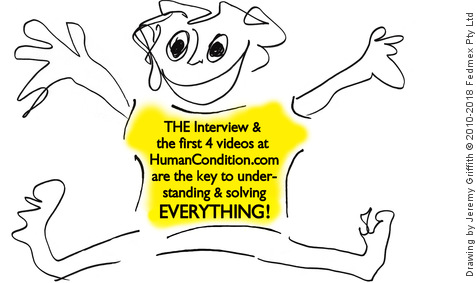

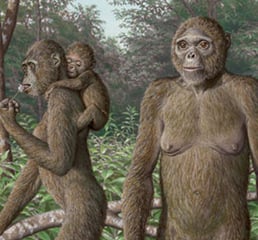
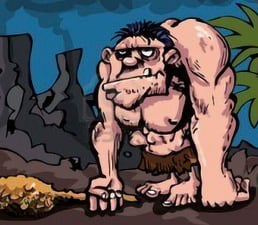

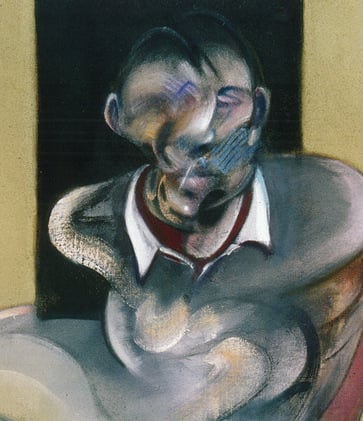
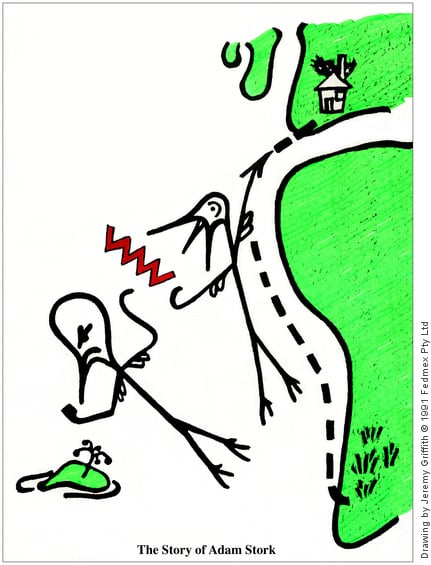
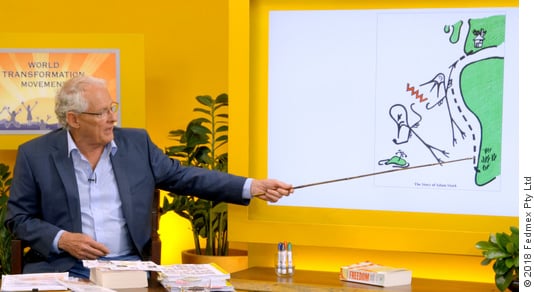
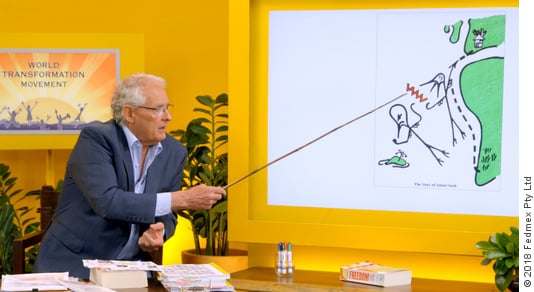
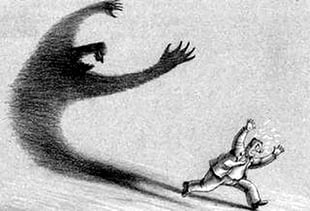
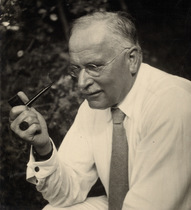
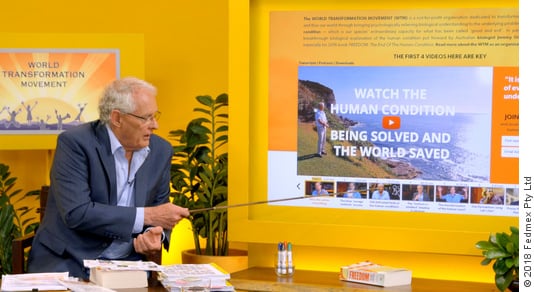
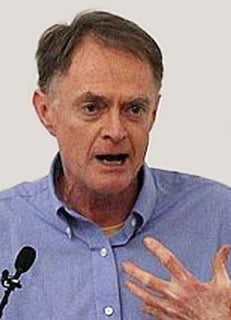
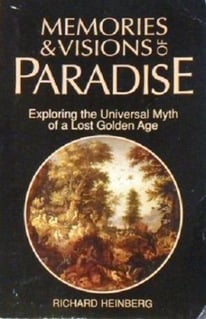
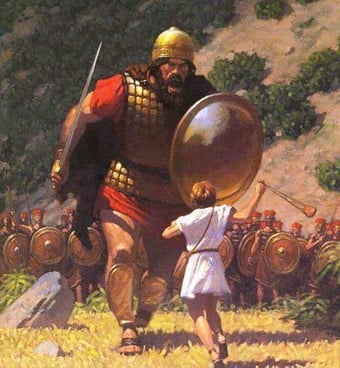
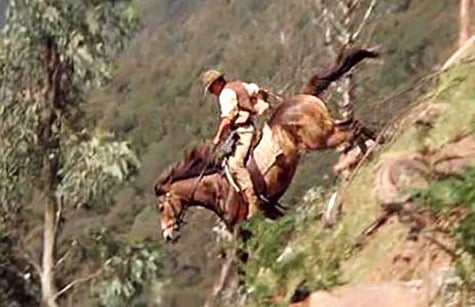
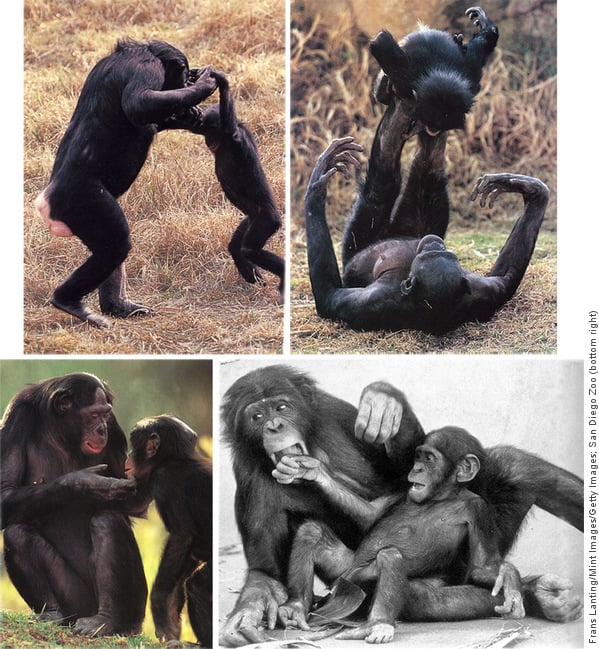
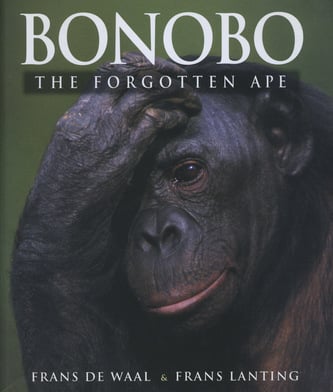
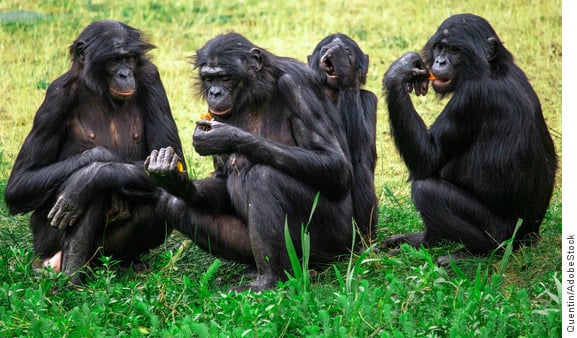
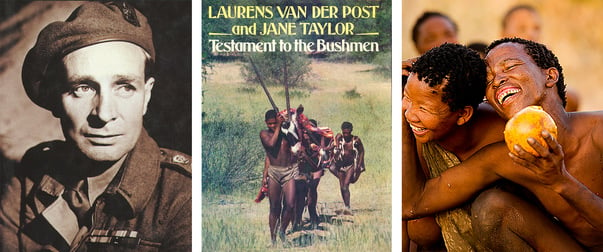
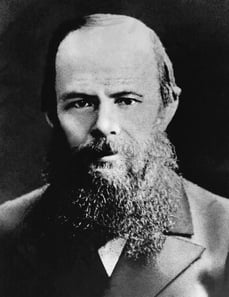
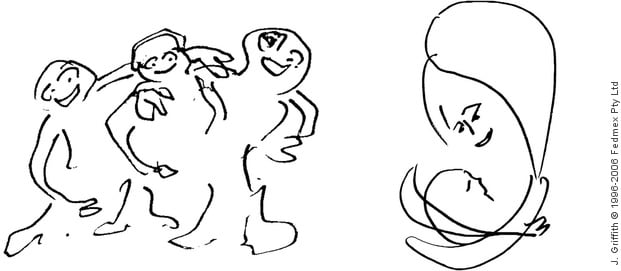
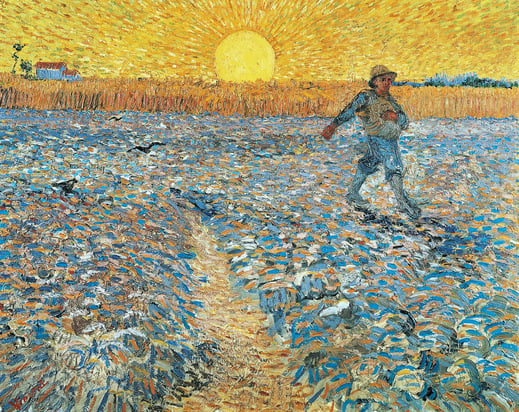

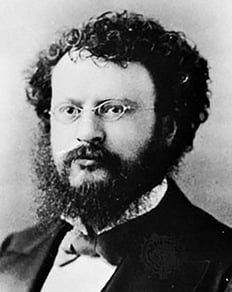



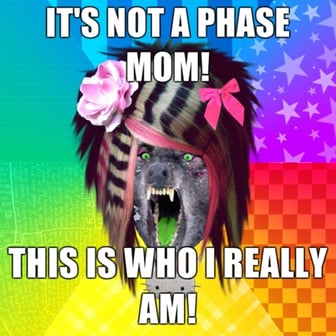
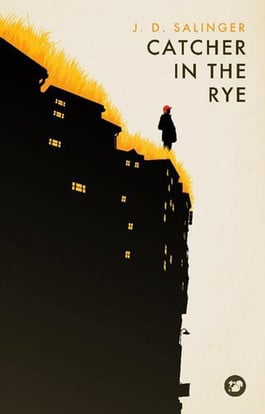
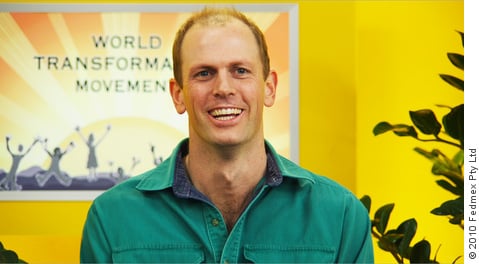
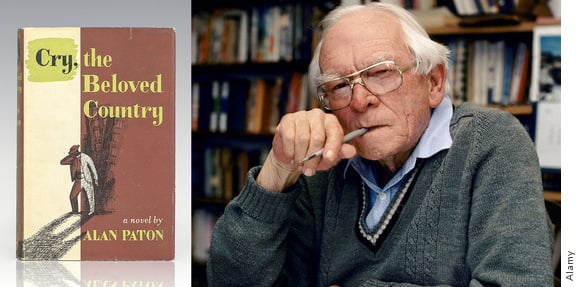

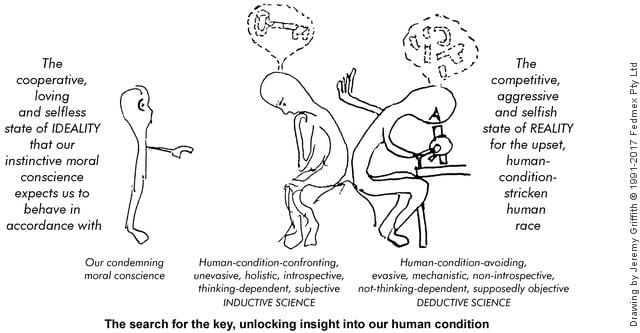
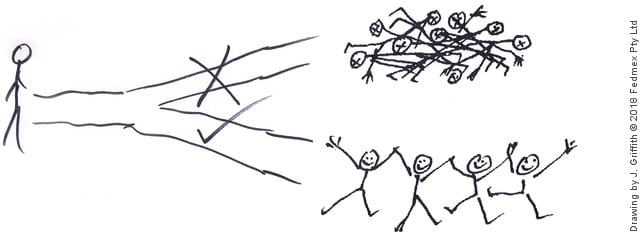
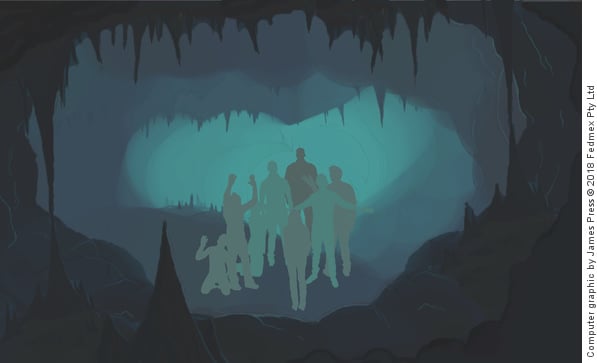
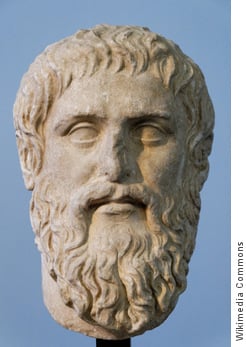
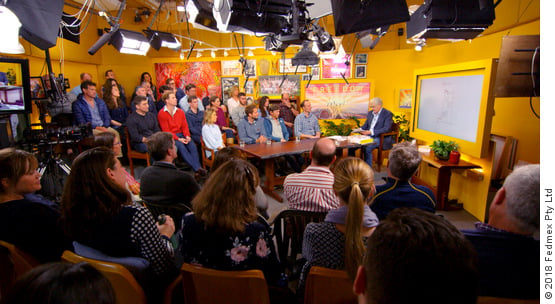
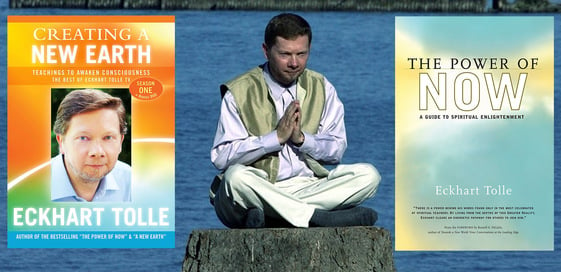

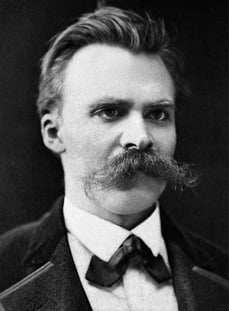
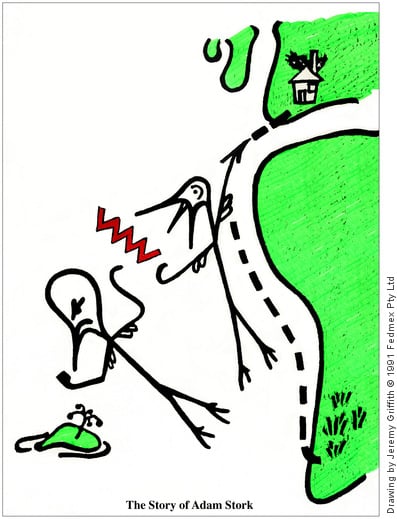
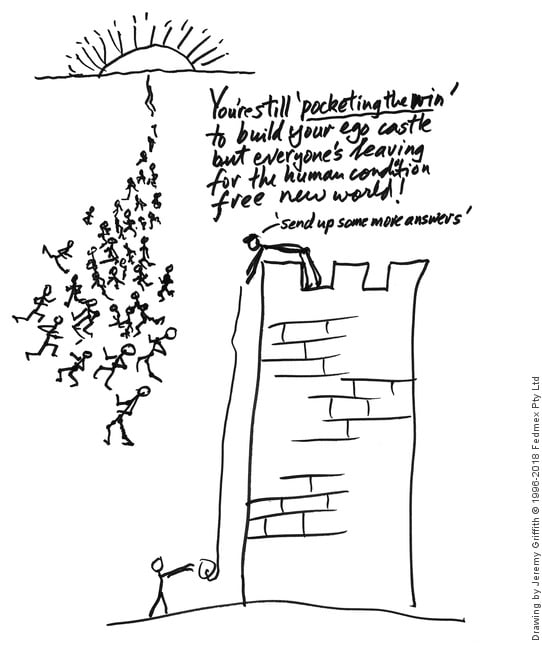
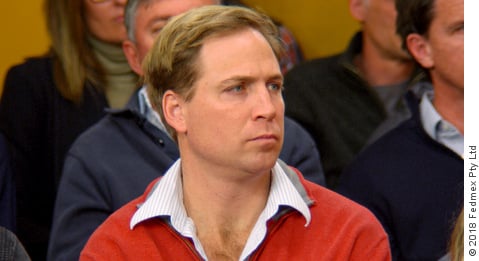
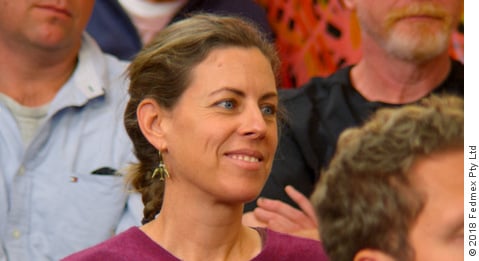
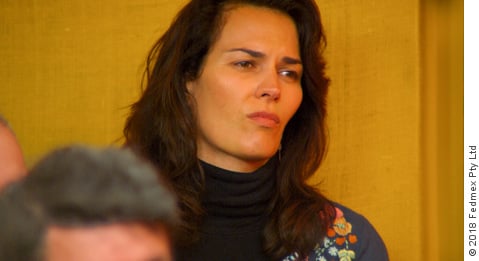
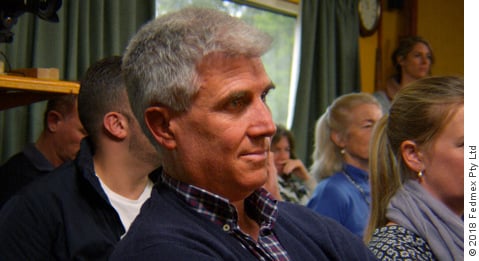
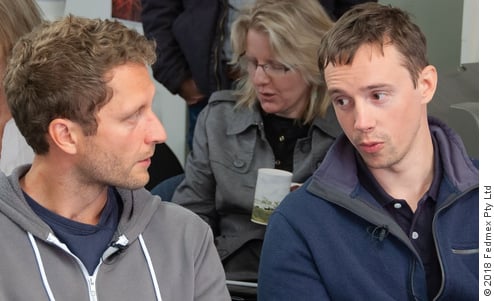
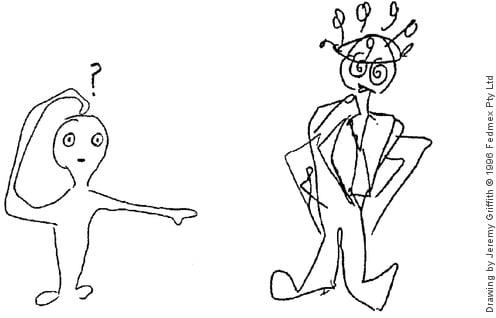
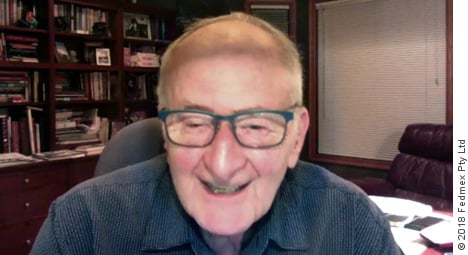
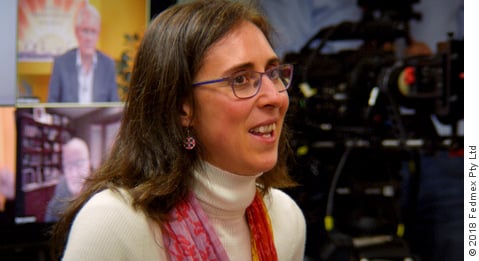
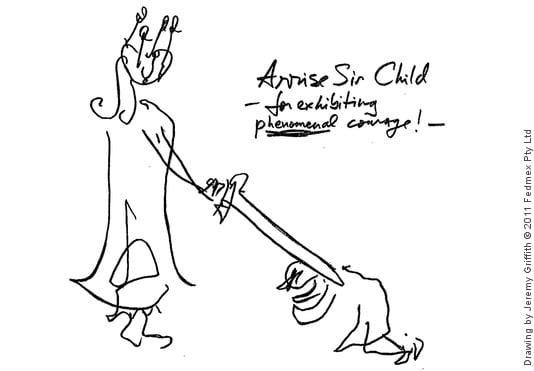
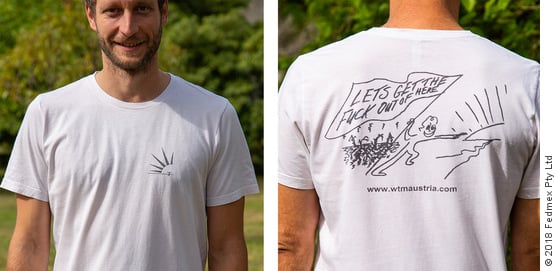

Please wait while the comments load...
Comments